transfer pricing
description: pricing of goods, services, or intellectual property transferred within an organisation, especially cross-border, for tax optimization
74 results
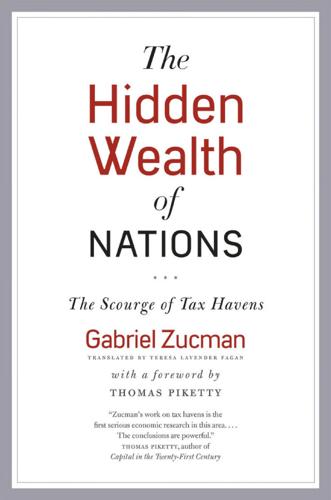
The Hidden Wealth of Nations: The Scourge of Tax Havens
by
Gabriel Zucman
,
Teresa Lavender Fagan
and
Thomas Piketty
Published 21 Sep 2015
The goal is to reduce the profits where they are taxed and have them appear in Luxembourg or in Bermuda, where they are taxed very little or not at all. This popular manipulation nevertheless comes up against a sizable problem: it is rather easy to detect. The second optimization technique, the manipulation of transfer prices, plays a more important role. Transfer prices are the prices at which branches of a given group buy their own products from one another. Within a single company, the branches in Bermuda sell services at a high price to entities located in the United States. Profits thus appear again in the tax havens and losses in the United States, in the large economies of continental Europe, and in Japan.
…
In 2003, less than a year before its initial public offering in August 2004, Google US transferred its search and advertisement technologies to “Google Holdings,” a subsidiary incorporated in Ireland, but which for Irish tax purposes is a resident of Bermuda.31 What was the fair-market value of Google’s technologies at the time of transfer, before the Mountain View firm was even listed as a public company? Google US had an incentive to charge as little as possible for this transfer. We do not know whether it was able to do so: the transfer price is not public information. But journalistic leaks in the fall of 2014, “LuxLeaks,” revealed that in many similar cases, the transfer prices that IT companies are able to charge when they send their intangibles to Bermuda is negligible, sometimes zero. Once that capital has arrived in Bermuda, all the profits that it generates are taxable there, where the corporate income tax rate is a modest 0%.
…
This surplus has nothing to do with any sort of competitive advantage; it doesn’t benefit the Irish population at all: it is entirely paid back to the foreign owners of the firms that operate in Ireland, so that Irish national income is only 80% of Irish GDP. Manipulations of transfer prices then massively distort the share of each factor of production (capital and labor) in corporate value added: the artificially elevated profits booked by foreign-owned firms make the capital share rise to more than 50% in sectors where immaterial capital is large, as in the pharmaceutical industry. A Twenty-First-Century Tax on Companies What is to be done? The current approach of the OECD and G20 countries consists of trying to reform the existing system by strengthening transfer-pricing regulations.34 The first efforts began in the second half of the 1990s, and yet the trend toward more widespread use of tax havens by US multinational companies has shown no particular sign of slowing down since then.
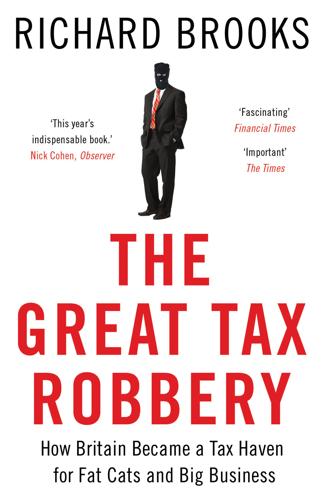
The Great Tax Robbery: How Britain Became a Tax Haven for Fat Cats and Big Business
by
Richard Brooks
Published 2 Jan 2014
If, for example a company made a batch of ball bearings in country A at a cost of $5 and sold it through an affiliated company in country B for $10, the transfer price between the companies might be $8, in which case the profit would be $3 in country A, $2 in country B. But if country A had a much higher tax rate, the multinational could adjust the price to $6, diverting an extra $1 of profit out of country A into country B and thus pocketing a significant tax saving. So how should the ‘transfer price’ be fixed? The League’s answer, in 1935, was the ‘arm’s length principle’, which following the Second World War, would be enshrined in an expanding network of bilateral taxation treaties agreed between the major trading nations.
…
‘Aggregation of entrepreneurial risks at a hub entity’ – located in a faraway tax haven – is exactly what Ernst & Young recommends. The same accountants conscientiously advise companies to ensure that their ‘transfer pricing’ arrangements faithfully follow real business operations so as not to fall foul of any future tax investigation. Tax haven companies must be paid for what they really do and what they really own, not just what the paperwork says. ‘Ensure alignment of transfer pricing and legal documentation with business substance’ insists E&Y responsibly, standing by to advise on the practicalities – for an appropriate fee – should any assistance be required.
…
And it was in this spirit that his successor Hugh Gaitskell soon shored up Britain’s business tax base against the tax avoidance possibilities created by expanding peacetime international trade. Most importantly, new laws tackled the practice of underpricing sales to, or overpricing imports from, overseas affiliates. This so-called ‘transfer pricing’ abuse, which often involved inserting a tax haven company in the middle of legitimate transactions, could seriously reduce or eliminate tax bills. A British company importing £1000 worth of widgets, for example, might pay £1200 to a company based in a tax haven but within the same corporate group, which would pay the £1000 to the company selling the widgets.

Dirty Secrets How Tax Havens Destroy the Economy
by
Richard Murphy
Published 14 Sep 2017
The ways in which profit shifting takes place are numerous, and can only be explained here in outline. Perhaps the most common is what is called transfer mispricing. Transfer pricing necessarily takes place in all groups of companies. A transfer price is what is charged when one company that is a member of a group sells goods or services to another company within the same group. It is called a transfer price simply to differentiate it from a market price, which is that which would be set between independent people trading in a marketplace. Transfer prices can be charged on anything, from manufactured components to internal accounting services, interest charges, and the sums due for the use of intellectual property in the form of royalty and copyright fees.
…
Transfer prices can be charged on anything, from manufactured components to internal accounting services, interest charges, and the sums due for the use of intellectual property in the form of royalty and copyright fees. Much of the world’s trade is subject to transfer pricing. It was estimated by the OECD in 2002 that around 60 per cent of world trade was undertaken on an intragroup basis, where transfer prices were charged.17 It is very likely, and openly speculated, that the proportion has risen since then. As globalisation has advanced and companies have diversified their activities over a large range of countries, the internal supply chains of many organisations have become very long. For example, in the case of the car, it is commonplace for the engines, interiors, electrical wiring looms and many other components all to be manufactured in different countries by different companies – all of which are owned by the same group – before they are then assembled into the final car, which is then itself sold within the group of companies before it reaches its final destination, and a real customer.
…
As the UK’s House of Commons Public Accounts Committee said of the big four accounting firms (PricewaterhouseCoopers, Deloitte, EY and KPMG) operating in the country in 2013: ‘They employ nearly 9,000 people just to provide tax advice to companies and wealthy individuals, much of which is aimed at minimising the tax paid. Between them they boast 250 transfer pricing specialists whereas HMRC has only 65 people working in this area.’18 It has been reported that the number of transfer-pricing specialists employed by HMRC has increased since then, but the odds remain stacked in favour of the companies undertaking such trades. The whole of the OECD’s Base Erosion and Profits Shifting programme, developed between 2012 and 2015, was aimed at tackling the various forms in which this abuse arises; but whether it succeeds or not is open to question, for two reasons.
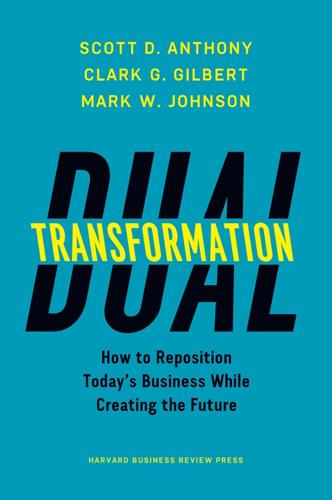
Dual Transformation: How to Reposition Today's Business While Creating the Future
by
Scott D. Anthony
and
Mark W. Johnson
Published 27 Mar 2017
Step 2: Determine Your Link Management Approach For each capability, use the next table to determine the approach you will follow to manage the link between the core and your new growth effort. Managing your capability links Enabling capability Link management approach Responsible leaders ❏ Transfer pricing ❏ Exchange team ❏ Formal rules ❏ _______________ ❏ Transfer pricing ❏ Exchange team ❏ Formal rules ❏ _______________ ❏ Transfer pricing ❏ Exchange team ❏ Formal rules ❏ _______________ ❏ Transfer pricing ❏ Exchange team ❏ Formal rules ❏ _______________ ❏ Transfer pricing ❏ Exchange team ❏ Formal rules ❏ _______________ Step 3: Identify How to Fill Capability Gaps Odds are that you don’t have all the capabilities you need to succeed with Transformation B.
…
In summary, the deferential but firm exchange team leader validates what is uniquely strong in A, while not compromising the principles that led to a separate organization for B in the first place. Institute Transfer Pricing Basic economics holds that dropping prices raises demand, and raising prices lowers it. One reason companies, in our view, overborrow capabilities is that it appears to be costless. A simple answer to this challenge, then, is to institute what’s known as transfer pricing, wherein you essentially make a market in capabilities. The transformation B team wants to tap in to the HR team to create employee agreements? Then the borrower team pays for a fraction of the lender team’s time.
…
Systems—such as how you budget, how you allocate people between project teams, how you gather customer feedback, how you create products, and how you measure and reward people—are optimized to achieve specific outcomes. By definition, that means they’re not optimized to achieve different outcomes. Thus, a key to successfully managing the capabilities link is to develop distinct systems, create formal exchange teams, and institute transfer pricing to handle the challenge of the interface between A and B. Develop A and B Systems with Different Rules A portfolio management system is a popular way to manage an interface. A robust portfolio management system clearly outlines that projects that look like this get evaluated using one set of criteria and funded from one bucket, and ones that look like that get evaluated using a different set of criteria and are funded from a different bucket.
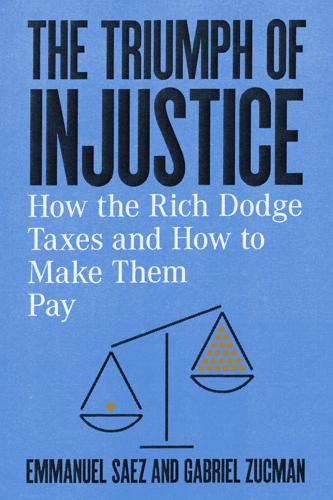
The Triumph of Injustice: How the Rich Dodge Taxes and How to Make Them Pay
by
Emmanuel Saez
and
Gabriel Zucman
Published 14 Oct 2019
Since these logos and trademarks and patents are never traded externally, firms can pick whatever price suits them. The product peddled by the tax-dodging industry is all-in: a creative intragroup transaction, and a certified “correct” transfer price to be charged for that transaction. In practice, the transfer prices used are typically those that maximize tax savings for the multinational group. The accountants that propose and certify these transfer prices are paid by the multinationals themselves. The outcome of all of this? Thanks to the proliferation of intragroup transactions conducted at doctored prices, high profits end up being recorded in subsidiaries where tax rates are low, and low profits in places where they are high.
…
First among these is successful lobbying by the tax-dodging complex. The transfer pricing industry lives by the system of corporate taxation created in the 1920s; it has a vital stake in preserving it. For example, if companies, instead of being taxed subsidiary by subsidiary, were taxed as consolidated entities, there would be no point in computing the prices of transactions between subsidiaries. The transfer pricing industry would become obsolete overnight. The stakes are huge: today, 250,000 people work as transfer pricing professionals in private firms, either in the Big Four or as direct employees of multinationals.3 It would be naïve to think that they are passive bystanders when it comes to the policies that condition the existence of their livelihoods.
…
Apple asks for a low tax rate to locate some of its companies in Ireland? Dublin obliges. Skype is worried that the taxman might one day contest the price at which it sold its intellectual property to its Irish subsidiary? Not to worry, the Grand Duchy sells insurance, in the form of what are known as advanced pricing agreements—contracts that rubber-stamp the transfer prices used by multinationals ahead of time. No profit shifting would be possible without the complicity of tax havens’ governments, many of which boast high statutory tax rates, but in practice grant lower rates to the companies they court and provide them with an array of schemes to duck laws and regulations imposed elsewhere.
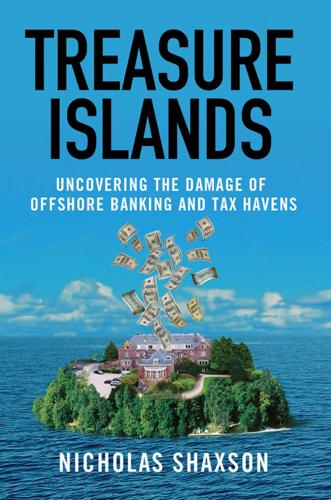
Treasure Islands: Uncovering the Damage of Offshore Banking and Tax Havens
by
Nicholas Shaxson
Published 11 Apr 2011
In the banana example, tax revenue has been drained out of a poor country and into a tax haven and funneled through to the wealthy owners of a multinational corporation. In October 2010 a Bloomberg reporter explained how Google Inc. cut its taxes by $3.1 billion in the previous three years through transfer pricing games known by names such as the “Double Irish” and “Dutch Sandwich,” ending up with an overseas tax rate of 2.4 percent.7 The problem is getting worse. Microsoft’s tax bill has been falling sharply, for similar reasons. Cisco is at it.8 They are all at it. Transfer pricing alone cost the United States an estimated $60 billion a year9—and that is just one form of the offshore tax game. Worldly readers may still shrug and tell themselves that this is just part of the ugly flipside of living in a rich nation.
…
I was sitting with David Spencer, a New York attorney previously with Citicorp, talking about transparency in the public finances of West African oil-producing nations. Spencer was getting agitated about matters that were not at all on my agenda: accounting rules, U.S. tax exemptions on interest income, and transfer pricing. I was wondering when he was going to start talking about West African corruption when I finally began to make a serious connection. The United States, by offering tax incentives and secrecy to lure money from overseas, had been turning itself into a tax haven. Tides of financial capital flow around the world in response to small changes in these kinds of tax and secrecy incentives.
…
Though most examples are far less blatant than this, the cumulative total of these shenanigans is vast. About two-thirds of global cross-border world trade happens inside multinational corporations. And it is poor countries in particular, with their underpaid tax officials, that always lose out to multinationals’ aggressive, highly paid accountants. What Big Banana has done here is transfer pricing (or mispricing), a common offshore trick that U.S. Senator Carl Levin calls “the corporate equivalent of the secret offshore accounts of individual tax dodgers.” The general idea is that by adjusting its internal prices a multinational can shift profits offshore, where they pay little or no tax, and shift the costs onshore, where they are deducted against tax.

The Raging 2020s: Companies, Countries, People - and the Fight for Our Future
by
Alec Ross
Published 13 Sep 2021
One of the most common techniques companies use to shift their profits around the globe is called transfer pricing. In short, this allows one branch of a company to pay another branch of that same company for goods and services that it provides, at a price basically set by the company itself. For multinational corporations, that often entails a subsidiary in one country making a payment to a subsidiary in a different country. Today, these sorts of intra-company payments are extremely common—about one-third of all international trade happens within the same company. Transfer pricing has many legitimate applications. If you are a multinational citrus producer and your Brazilian subsidiary sends ten tons of oranges to the US, it is reasonable for the American subsidiary to pay its Brazilian counterpart for product and shipping costs.
…
Intellectual property is incorporeal, easy to move from one country to another, and hard to pin down in terms of value. This makes it an ideal product for transfer pricing abuse. By hiking up the licensing fees—in Google’s case, €16.1 billion for a single year—tech companies can shift huge amounts of profit to the offshore havens where their intellectual property legally resides. Just how much does this intellectual property offshoring cost the world’s governments? Fair Tax Mark estimated that between 2010 and 2019, the big American technology platforms used transfer pricing and other strategies to collectively shave between $100 billion and $155 billion off their international tax bills.
…
If you are a multinational citrus producer and your Brazilian subsidiary sends ten tons of oranges to the US, it is reasonable for the American subsidiary to pay its Brazilian counterpart for product and shipping costs. That said, transfer pricing can easily be abused. In 2019, American corporations reported earning $577 billion in profits outside the United States. Nearly 60 percent of that money—some $330 billion—was “earned” in just seven low-tax jurisdictions: Ireland, Luxembourg, Switzerland, the Netherlands, Singapore, Bermuda, and the British Caribbean (the Cayman Islands, British Virgin Islands, Turks and Caicos, and Montserrat).
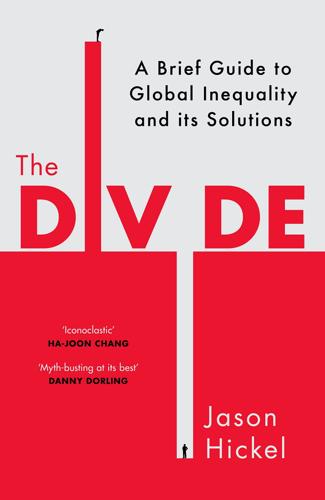
The Divide: A Brief Guide to Global Inequality and Its Solutions
by
Jason Hickel
Published 3 May 2017
There are other forms of misinvoicing that go completely under the radar, such as ‘transfer mispricing’. To understand how transfer mispricing works, we first have to understand normal transfer pricing. Transfer pricing happens when companies sell goods within their own corporate structure, for example if a subsidiary in China sells goods to another subsidiary in Britain. Because of the rapid expansion of corporate monopolies over the past few decades, today at least 60 per cent of world trade takes place within multinational corporations, rather than between them.17 So transfer pricing is not an exceptional practice – it is the norm. And under normal circumstances it is completely legal, as long as subsidiaries report the correct market prices of the goods in question as if they were conducting trade with an outside entity, ‘at arm’s length’.
…
And under normal circumstances it is completely legal, as long as subsidiaries report the correct market prices of the goods in question as if they were conducting trade with an outside entity, ‘at arm’s length’. But quite often companies artificially distort transfer prices in order to evade taxes or dodge capital controls; this is when transfer pricing becomes transfer mispricing. Transfer mispricing is remarkably easy. All a company has to do is write out an invoice that falsely reports the cost of an item, and then get their trade partner to write out a similarly false invoice on the other side – in other words, ‘same-invoice faking’.
…
The GFI study cites $2.97 trillion in net outflows between 1980 and 2012 through recorded transfers (mostly driven by countries with large current account surpluses, like China), $6.6 trillion through capital flight through leakages in the balance of payments, and $6.8 trillion through trade misinvoicing in goods. They estimate that another $6.8 trillion was lost through ‘same-invoice faking’ or ‘abusive transfer pricing’ in goods. Including trade in services, trade misinvoicing and abusive transfer pricing rise to $8.5 trillion each. This makes for a total of about $26.5 trillion in net outflows since 1980. For more on GFI’s methodology, see Chapter 7 and accompanying notes. Note that GFI’s calculations of net resource transfers do not include inward capital flight.
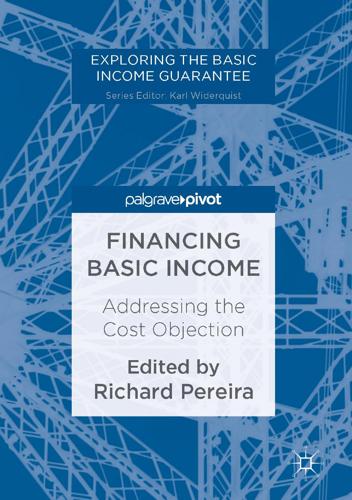
Financing Basic Income: Addressing the Cost Objection
by
Richard Pereira
Published 5 Jul 2017
(CPJ – Citizens for Public Justice 2012; Canadians for Tax Fairness n.d.) As concerns developing countries, tax havens facilitate transfer pricing, capital flight and corruption worth 10 times the value of aid received by these countries (CPJ 2012). In the UK one of numerous high-profile stories recently involved the American multinational company Starbucks repeatedly claiming annual financial losses despite making billions of pounds in profits. Transfer pricing allows such corporations to use offshore tax havens and other mechanisms to misprice transactions between companies in a group (Clinch 2012).
…
Vast wealth is channelled away from public goods through these shady and secretive offshore jurisdictions, placing additional burdens on those in lower income brackets. Addressing this as a priority, before referring to any personal income tax increases, is a necessity as the existing system is not being honoured or enforced. Related issues of transfer pricing used as a mechanism to artificially lower profit figures, and therefore taxable income, by major corporations also needs to be addressed on the tax side before objecting to programme costs, even if the costs for UBI are overestimated. Such issues deal directly with the existing tax system as it stands, and the priority is to ensure fair and progressive rates of taxation are actually collected under current rules before raising the scare of personal income tax increases.
…
Interestingly, Canadians supported higher levels of basic income than lower levels, that is, $10,000 per adult (57% support), $20,000 (65% support) and a $30,000 annual basic income received 67% support. 6 Appendix 2 Marginal Personal Income Tax Rates: American Precedents, Veils of Ignorance The UBI cost objection does not deal sufficiently with tax leakage (tax havens, transfer pricing, etc.) in the existing system at prevailing income tax rates, as discussed earlier in this book. The cost objection argument states that income tax increases on labour are required to fund basic income, and that they would be too onerous and politically unacceptable. Yet historical precedent does exist for higher personal (and corporate) income tax rates, including at over 90% for the top income bracket in the US in the 1950s – under a Republican political administration.
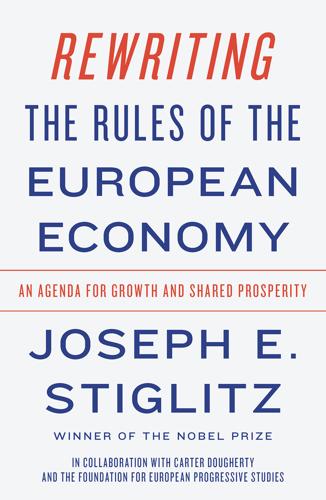
Rewriting the Rules of the European Economy: An Agenda for Growth and Shared Prosperity
by
Joseph E. Stiglitz
Published 28 Jan 2020
For example, what is the value of an unfinished car without an engine or wheels, or a shirt without buttons, sleeves, and a collar? Moreover, how do we value the contribution of intellectual property? Companies have found that the transfer price system gives them an almost entirely free hand to shift their profits to low-taxed jurisdictions. Occasionally, tax authorities dispute the transfer prices, but this process is long and expensive. Within the United States, where goods in the process of production move frequently across state borders, the transfer price system has long been abandoned. Instead, US states use what is called a formulaic system, in which the total profits of the firm are allocated based on the proportion of the capital, sales, and employment within the state.
…
At the very least, the EU needs an agreement on a minimum tax rate to prevent the current situation from growing even worse. Importantly, the Ireland-Apple case highlighted a broader reality of the global economy: multinational corporations operate within many countries, which raises the questions of how their profits should be apportioned among those countries. The traditional method of such allocation is called transfer pricing, a process in which companies are supposed to value the inputs they obtain from international parts of the company and the goods and services they deliver to other parts of the company at fair market prices (what are called arms-length prices, what prices would be if they were set by competitive, unrelated entities).
…
See also competitive markets critical components summarized, 139 managerial incentive systems, 140–43 the right mix of decision-makers, 139–40 rules for decision-making, 139 compulsory licenses, 148 Consumer Prices, Harmonised Index of (HICP), 64 convergence criteria, 33–35 cooperative ownership, 270 cooperatives and local banking institutions, 184–86 core inflation metrics, 82 corporate governance central problem of, 127–28 CEOs and executives, 137–38, 140–43 long- vs. short-term gains, 136 stakeholder capitalism and, 136–37 corporate taxation investment and, 194–95 lower tax rates and, 191–92 moving toward resolution, 198–99 tax avoidance and evasion, 195–97 tax competition, 192–94, 195 transfer pricing and, 198 corporations and businesses. See also corporate governance; corporate taxation; small- and medium-sized enterprises CEO and executives of, 137–38, 1400–143 globalization benefitting, 288–89, 304 intellectual property rights benefitting, 325–26 markets of (see market economies; market power) organizational forms of, 141–43 tax reformation of, 318–20 trade regulations impacting, 317–18 trade talk privileges of, 314 credit card companies, 133 credit issues credit availability (see loans and lending) credit rating agencies, 171 German practices causing, 46 internal devaluation impacting, 42 macro-prudential regulations and, 92–93 crisis countries analysis of, 68 austerity impacting, 37 divergent issues of, 48–49 ineffective EU policies in, 60–61 internal devaluation and, 41–44 single currency system impacting, 39, 54 cross-border externalities, 307–8 deadly sovereign-bank embrace, 176 debt Debt Doctrine, 17–18 debt-to-GDP ratio, 78–79 limiting (see Stability and Growth Pact) mutualization of, 55–57 restructuring of, 57–58 2008 crisis impacting, 35 Debt Doctrine, 17–18 decentralized bargaining, 263 deficits.
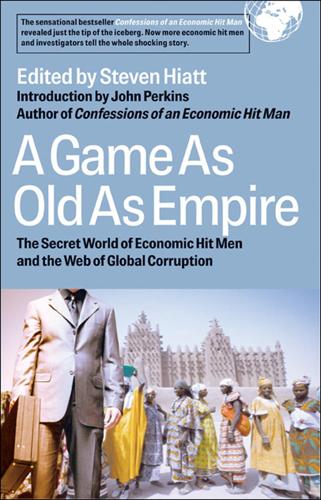
A Game as Old as Empire: The Secret World of Economic Hit Men and the Web of Global Corruption
by
Steven Hiatt; John Perkins
Published 1 Jan 2006
Many of our clients were multinational businesses, which use tax havens to move profits away from higher-tax jurisdictions through what’s called transfer pricing: the process through which two or more businesses owned by the same people trade with each other. Technically speaking, transfer pricing is legal and necessary because the majority of world trade occurs between subsidiaries of the same company. In practice, however, the international conventions relating to transfer pricing are largely ineffective because there is no market price for goods traded between units of a multinational company. Businesses thus use their tax haven subsidiaries to overprice their imports and underprice their exports, thereby massively reducing their tax bill.
…
Many African economies, for example, are dominated by multinational businesses operating in strategic sectors such as oil and gas, mining, commodities trading, and pharmaceuticals. Because their tax administrations are unable to investigate transfer pricing schemes, developing countries are unable to raise the money they need to fund their public services. One expert on African tax issues notes that no African country has ever successfully challenged a transfer pricing arrangement, even though such abuses are endemic across the continent. Some economists actually endorse this type of aggressive tax avoidance. Company directors, they argue, have a duty to minimize costs, including taxes.
…
O’Connor had been petroleum tax adviser to ITIC since 2000, when he led a European Union project to reform Russia’s tax system. Although the EU project was publicly funded, ITIC had enthused in its newsletter, “The legislative areas to be addressed in this project will include many of the priorities identified by ITIC sponsors, including: transfer pricing, oil and gas taxation, VAT, and environmental taxation, and profits tax…. As the project moves forward, we will be regularly seeking input and guidance from our sponsors.”19 O’Connor and Witt formed an “expert group” of nine other economists to work on the Iraq project. Only one, Muhammad Ali Zainy, was Iraqi.
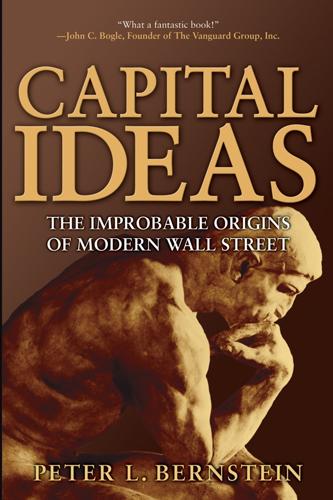
Capital Ideas: The Improbable Origins of Modern Wall Street
by
Peter L. Bernstein
Published 19 Jun 2005
Fred Weston, a distinguished professor on the UCLA faculty, had Sharpe taking one of his seminar courses and simultaneously teaching part of another of Weston’s courses on the basis of what had he had learned in the first. The work Sharpe was doing at RAND in 1960 was in an area known as transfer prices, the prices that one division of a corporation charges another division. When General Motors buys radios from its wholly owned subsidiary Delco to install in its automobiles, the price charged by Delco is a transfer price. And when Exxon moves crude oil from the well to the refinery, the refinery pays the drilling organization an appropriate transfer price. Without transfer prices, integrated corporations would never be able to arrive at a rational appraisal of the profitability of the assets they devote to their individual segments.
…
His next effort, “Aircraft Compartment Design Criteria for the Army Deployment Mission,” appeared in the Naval Research Logistics Quarterly, the same journal that had carried Markowitz’s “The Optimization of a Quadratic Function Subject to Linear Constraints” three years earlier. The article on the simplified model in Management Science was only the third time Sharpe had appeared in print. For reasons that he now finds difficult to reconstruct, Sharpe became fascinated by the subject of transfer pricing in 1960, so much so that he decided to write his Ph.D. thesis about it. After writing some 60 pages of what he thought was “earth-shattering stuff,” he showed his work to Jack Hirshleifer, a newly arrived economist to whom Sharpe had just been assigned.6 Hirshleifer came back to him a week later and declared flatly that there was absolutely no thesis there.
…
See also Capital gains tax Texas Instruments “Theoretical Valuation Formula for Options, Warrants, and Other Securities, A” (Black/Scholes) Theory of Interest, The (I. Fisher) Theory of Investment Value, The (Williams) Ticker tape Time analysis Tokyo Stock Exchange “Toward a Theory of Market Value of Risky Assets” (Treynor) Transaction costs. See also Brokerage commissions Transfer pricing Transportation Average Treasury bills/bonds Trends in stock movements, predictive model “Trouble With Earnings, The” (Treynor) Trust management Trusts, personal UCLA Union Carbide United Air Lines (UAL) University of Chicago. See also Center for Research in Security Prices (CRSP) U.S.
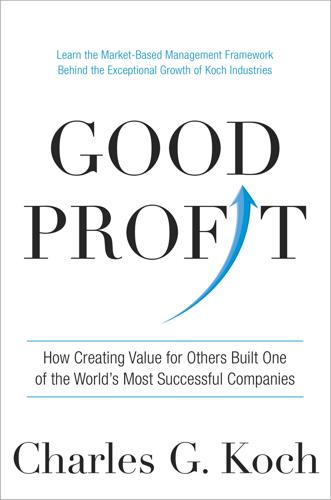
Good Profit: How Creating Value for Others Built One of the World's Most Successful Companies
by
Charles de Ganahl Koch
Published 14 Sep 2015
It also led to business leaders being overly focused on revenue, since that was one of the few measures they had. The result was an unprofitable proliferation of products. Leaders had no say in how overhead was allocated to product lines, leaving them without a genuine sense of ownership. Internal transfer prices were determined by formulas, rather than by a system that encouraged everyone to optimize for the company as a whole. We immediately established profit measures and market-based transfer prices to create accountability for every line of INVISTA’s income statement and balance sheet. These measures enabled leaders to see which businesses were doing poorly and needed restructuring (and why), and which were doing well and justified additional investment.
…
When transferring products internally, prices should reflect the market alternative. As such, the internal price should represent the market price for the appropriate marginal volume. If the market is not liquid and there is a big difference in the price of buying and selling that volume, the transfer prices should be set between the two, usually at the average. There is no way to make sound business decisions without realistic transfer prices that enable profitability to be measured accurately. Transferring products using a cost-based system leads to faulty profit signals and bad decisions. This is akin to the government subsidizing one business versus another, which distorts the market process and creates waste.
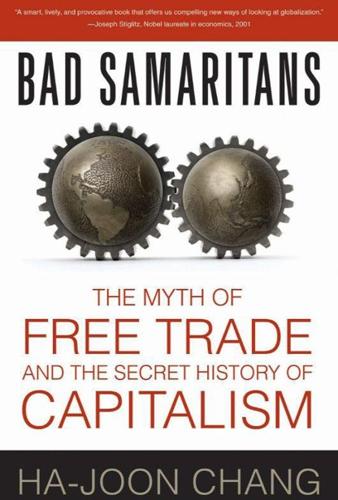
Bad Samaritans: The Myth of Free Trade and the Secret History of Capitalism
by
Ha-Joon Chang
Published 26 Dec 2007
, Finance and Development, vol.. 28, no. 2. 22 In addition, with the increasing importance of collective investment funds that I discussed previously (note 5), there is also shortening of time horizons for FDI, which makes such ‘liquidizing’ of FDI more likely. 23 These include local content requirements (where TNCs are required to buy more than a certain share of inputs from local producers), export requirements (where they are forced to export more than a certain proportion of their output) and foreign exchange balancing requirements (where they are required to export at least as much as they import). 24 Christian Aid (2005), ‘The Shirts off Their Backs – How Tax Policies Fleece the Poor’, September 2005. 25 Kose et al. (2006), pp. 29. 26 Moreover, brownfield investment can magnify the negative impact of transfer pricing. If a TNC that has bought up, rather than newly created, a company is practising transfer pricing, the firm that has now become a TNC subsidiary could be paying less tax than it used to when it was a domestic firm. 27 The data are from UNCTAD (United Nations Conference on Trade and Development). 28 Especially when it comes to FDI by collective investment funds (see notes 5 and 22), this may be the sensible strategy, as they do not have the industry-specific knowhow to improve the productive capabilities of the firms they buy up. 29 R.
…
This is why many countries have imposed controls on the foreign exchange earnings and spending by the foreign companies making the investment (e.g., how much they should export, how much inputs they have to buy locally).23 Another drawback with foreign direct investment is that it creates the opportunity for ‘transfer pricing’ by transnational corporations (TNCs) with operations in more than one country. This refers to the practice where the subsidiaries of a TNC are overcharging or undercharging each other so that profits are highest in those subsidiaries operating in countries with the lowest corporate tax rates.
…
A Christian Aid report documents cases of underpriced exports like TV antennas from China at $0.40 apiece, rocket launchers from Bolivia at $40 and US bulldozers at $528, and overpriced imports such as German hacksaw blades at $5, 485 each, Japanese tweezers at $4, 896, and French wrenches at $1, 089.24 This is a classic problem with TNCs, but today the problem has become more severe because of the proliferation of tax havens that have no or minimal corporate income taxes.Companies can vastly reduce their tax obligations by shifting most of their profits to a paper company registered in a tax haven. It may be argued that the host country should not complain about transfer pricing, because, without the foreign direct investment in question, the taxable income would not have been generated in the first place. But this is a disingenuous argument. All firms need to use productive resources provided by government with taxpayers’ money (e.g., roads, the telecommunications network, workers who have received publicly funded education and training).
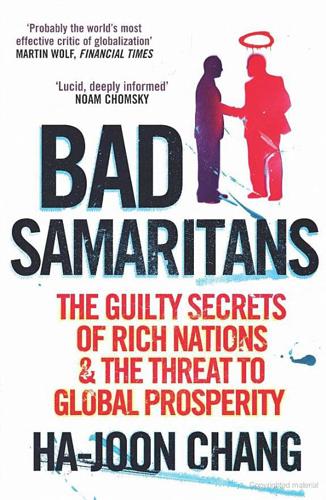
Bad Samaritans: The Guilty Secrets of Rich Nations and the Threat to Global Prosperity
by
Ha-Joon Chang
Published 4 Jul 2007
, Finance and Development, vol.. 28, no. 2. 22 In addition, with the increasing importance of collective investment funds that I discussed previously (note 5), there is also shortening of time horizons for FDI, which makes such ‘liquidizing’ of FDI more likely. 23 These include local content requirements (where TNCs are required to buy more than a certain share of inputs from local producers), export requirements (where they are forced to export more than a certain proportion of their output) and foreign exchange balancing requirements (where they are required to export at least as much as they import). 24 Christian Aid (2005), ‘The Shirts off Their Backs – How Tax Policies Fleece the Poor’, September 2005. 25 Kose et al. (2006), pp. 29. 26 Moreover, brownfield investment can magnify the negative impact of transfer pricing. If a TNC that has bought up, rather than newly created, a company is practising transfer pricing, the firm that has now become a TNC subsidiary could be paying less tax than it used to when it was a domestic firm. 27 The data are from UNCTAD (United Nations Conference on Trade and Development). 28 Especially when it comes to FDI by collective investment funds (see notes 5 and 22), this may be the sensible strategy, as they do not have the industry-specific knowhow to improve the productive capabilities of the firms they buy up. 29 R.
…
This is why many countries have imposed controls on the foreign exchange earnings and spending by the foreign companies making the investment (e.g., how much they should export, how much inputs they have to buy locally).23 Another drawback with foreign direct investment is that it creates the opportunity for ‘transfer pricing’ by transnational corporations (TNCs) with operations in more than one country. This refers to the practice where the subsidiaries of a TNC are overcharging or undercharging each other so that profits are highest in those subsidiaries operating in countries with the lowest corporate tax rates.
…
A Christian Aid report documents cases of underpriced exports like TV antennas from China at $0.40 apiece, rocket launchers from Bolivia at $40 and US bulldozers at $528, and overpriced imports such as German hacksaw blades at $5,485 each, Japanese tweezers at $4,896, and French wrenches at $1,089.24 This is a classic problem with TNCs, but today the problem has become more severe because of the proliferation of tax havens that have no or minimal corporate income taxes. Companies can vastly reduce their tax obligations by shifting most of their profits to a paper company registered in a tax haven. It may be argued that the host country should not complain about transfer pricing, because, without the foreign direct investment in question, the taxable income would not have been generated in the first place. But this is a disingenuous argument. All firms need to use productive resources provided by government with taxpayers’ money (e.g., roads, the telecommunications network, workers who have received publicly funded education and training).
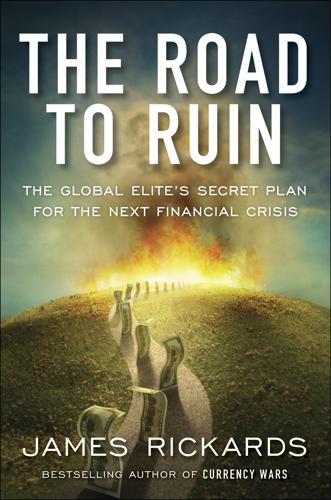
The Road to Ruin: The Global Elites' Secret Plan for the Next Financial Crisis
by
James Rickards
Published 15 Nov 2016
In a decentralized system of high-tax developed countries and low-tax haven countries, global corporations easily find ways to avoid taxation. Standard techniques include the transfer of intellectual property like patents and software to tax havens. Once there, intellectual property earns royalties without paying tax to the new host nation. Another technique is transfer pricing. Corporations in high-tax nations pay inflated costs to their affiliates in low-tax nations. This shifts income to the low-tax nation and creates tax deductions in the high-tax nation. Other more sophisticated techniques include netting centers in high-tax countries where global purchases and sales are booked.
…
Deferring a tax liability for ten years reduces the real cost radically by the time the tax is paid. Derivatives, not clearly addressed in tax treaties, are added to the mix to blow smoke in the eyes of tax authorities. Lobbyists are employed in the main developed countries to ensure that the rules remain unchanged. Weighing all of the above—property shifting, transfer pricing, netting, tax treaties, leasing, conversion, deferral, and derivatives—it is no surprise that corporate tax collection by individual nations is a sieve. Corporate cash flows through the sieve to the bottom line. Countries are left empty-handed. Policy elites in the United States, Germany, the United Kingdom, and Japan are well aware of these techniques.
…
The world tax database will be available to all participants in the system including the G20 nations. The database would be housed on high-capacity computers using sophisticated algorithms and predictive analytics. Like the shark, companies could run, but no longer hide. Once the computers have identified tax games, the G20 will get to work with legal assaults. Transfer prices, asset moves, leases, and tax treaty structures will be challenged using broad antiavoidance statutes. A tax haven that stands in the way will find its international banking connections shut down. This happened to Belize in 2015. International banks were forced by the U.S. Treasury to cut off correspondent relations with Belizean banks.

The Looting Machine: Warlords, Oligarchs, Corporations, Smugglers, and the Theft of Africa's Wealth
by
Tom Burgis
Published 24 Mar 2015
The result is that the group’s overall effective tax rate is much lower than it would have been had it apportioned profits fairly. Many such tax manoeuvres are perfectly legal. When it is done ethically ‘transfer pricing’, as the technique in this example is known, uses the same prices when selling goods and services within one company as when selling between companies at market rates. But the ruses to fiddle transfer pricing are legion. A mining company might tweak the value of machinery it ships in from abroad, or an oil company might charge a subsidiary a fortune to use the parent’s corporate logo. Suppose Fowl Play gets even cannier.
…
Numerous studies have concluded that, although such tax dodging is a problem, no one knows the scale of it, particularly in poor countries, where reliable data are scarce.30 The Organisation for Economic Co-operation and Development, the club of the world’s richest nations, acknowledged in 2013 that ‘multinationals have been able to use and/or misapply’ the rules that govern transfer pricing ‘to separate income from the economic activities that produce that income and to shift it into low-tax environments’.31 Noting that ‘tax policy is at the core of countries’ sovereignty’, the OECD called for ‘fundamental changes’ to the ways in which multinationals are taxed. If multinational companies were genuinely declaring profits where they were made, one might expect a broad correlation between the size of the profit and the size of the economy.
…
T., 233 Steinmetz, Beny Guinea minerals and, 108, 110, 113, 123, 124, 125, 126–127, 128, 143, 228, 244 wealth/minerals (overview), 105–106, 228 See also BSGR Stiglitz, Joseph, 4 Sudan, 136, 147, 154 Sule, Yusuf Maitama, 179–181 Sunmonu, Mutiu, 193–194, 195–196, 207–208 Survival of the fattest, 74, 190 Susa, Anna Rebecca/family, 46–47 Sussman, Robert, 33, 34 Sylva, Timipre, 189–190 Takatoshi Kato, 173 Tandja, Mamadou coup against, 133, 137–138, 141–142 Ousmane (son), 141 as president/corruption, 131–133, 135, 137–138, 139–140, 141–142 Tantalum, 29–30, 34, 42, 45 Tantalus (Greek mythology), 29–30, 34 Tanzania, 31, 165 Taxation and representation relationship, 73 Taylor, Charles, 225 Tegera, Aloys, 59 Thiam, Mahmoud Guinea and, 112–115, 117, 118–120, 121–122, 124, 125, 128, 190, 243–244 Queensway Group individuals/tactics and, 83, 90, 146–147, 190 Tompolo, 177 Total, 2, 11, 94, 136, 139, 142–143, 145 Toumba. See Diakité, Aboubacar Touré, Mamadie with Cilins in Florida, 103–105, 109, 125–126, 127 Guinea’s minerals and, 103–105, 109, 110, 124, 125–126, 127 Transfer pricing, 166 Transparency International, 17 Trendfield company, 140–141, 144 Trump, Donald, 246 Tsvangirai, Morgan, 219, 223, 237 Turner, Bill, 39–40 Tutsi/Hutu conflict and aftermath, 30–31, 32, 40–41, 43–44, 45–46, 55, 56 Tutu, Desmond, Archbishop, 66 Uba, Andy, 77, 193 Ukraine, 147, 242 Umunna, Hillary, 64–65 Vale mining and Guinea, 104, 108, 123–124, 128, 129–130 Varma, Somit, 163–164 Vicente, Manuel background, 10–11, 19 business empire, 23, 99 China Sonangol/Queensway Group and, 26, 94, 95, 96–97, 98, 100, 114, 119 Futungo and, 10–11, 12, 97, 111 oil and, 11, 12, 14, 16, 17, 18–19, 25, 26, 94, 95, 96–97, 98, 100, 114, 119 poverty in Angola and, 20, 208 Vines, Alex, 100 ‘VIP’ (‘Vagabond in Power’/Nneka), 246–247 Voser, Peter, 194 ‘Vultures’ (Achebe), 208 Wang Xiangfei, 90–91, 92–93 Wase, Abdullahi, 182 Washington Consensus, 163, 171 Wolfensohn, James, 157, 171 Wolfowitz, Paul, 170 World Bank Africa/African countries and, 57–58, 65, 136, 151–152, 163–164 BRICS nations vs., 218 China credit vs., 137, 170, 171 criticism of, 3, 151–152, 157–159, 160, 161, 164, 170, 171 description/staff, 169–170 ‘extreme poverty’/poor countries, 4 IFC and, 153, 154, 156 Miga and, 158–161 reputation/influence, 169–170 role/methods, 144, 151, 153, 154, 157, 165, 170 Salim’s criticism/recommendations, 157–159, 160, 161, 164, 170, 171 structural adjustment programmes, 162–163, 171 See also International Finance Corporation (IFC) World Trade Organization (WTO), 81, 157, 239 Wu Yang, 93, 98, 101–102, 145, 193 Xi Jinping, 23 Xia Huang, 134–135, 148, 149 Xueming Li (pseudonym), 91 Yar’Adua, Umaru health problems/death, 72, 73, 77, 78, 79, 183–184, 189, 201, 202, 203 as Katsina governor, 68 presidential campaign/as president, 69, 72, 77–78, 179, 202 Zambia, 4, 34, 56, 163, 165, 225 Zeng Peiyan, 86–87, 94, 99 Zibi, Songezo, 217 Zimbabwe diamonds/effects, 220–223, 226, 235–236 ‘indigenization’ of mining industry/corruption, 230–232 Marange massacre/Operation No Return, 220–221, 222, 226, 235, 236 minerals (overview), 231 Mugabe’s security forces/CIO, 223, 226, 234–236, 237, 243 Pa/Queensway Group and, 223, 230, 234, 235–236, 237–238, 243 See also specific companies/organizations; specific individuals Ziv, Israel, 117 Zuks, Nik, 143–144 Zuma, Jacob, 217–218 About the Publisher Australia HarperCollins Publishers (Australia) Pty.
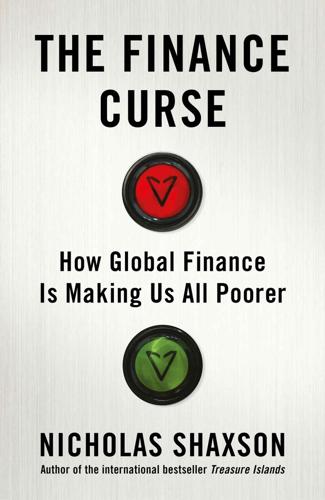
The Finance Curse: How Global Finance Is Making Us All Poorer
by
Nicholas Shaxson
Published 10 Oct 2018
You take your money or your business elsewhere – offshore – to escape the rules and laws at home that you don’t like. These laws may involve taxes, disclosure, financial or labour regulations, shipping requirements or whatever, so ‘tax haven’ is a misnomer; these places are about so much more than tax. But let’s take tax, and a classic tax haven trick which began to emerge in Veblen’s day called transfer pricing. Imagine it costs a multinational $1000 to produce a container of bananas in Ecuador, and a supermarket in Wales will buy that container for $3000. Somewhere in this system lies $2000 profit. The question is: who gets to tax that profit? The multinational now sets up three subsidiaries: EcuadorCo, which produces the bananas, WalesCo, which sells the bananas to the supermarket, and a third shell company with no employees, PanamaCo, in a tax haven.
…
The song ‘Happy Birthday’, originally created by a US kindergarten teacher in 1893, was under copyright until a judge overturned it in 2016 after a long legal battle. Until then you were supposed to pay the copyright holders royalties every time you sang it in public.24 And patents are often combined with other wealth-extraction techniques. Remember those transfer pricing games I described in Chapter 1, where the banana company shifted all its profits from Ecuador and Wales into a tax haven? Multinationals also shovel bucketloads of patents into shell companies in tax havens, not just slashing their tax bills, but also turbocharging the incentives to keep prices high.
…
See ‘Offshore profit shifting and the U.S. tax code – Part 2 (Apple Inc.)’, US Senate Permanent Subcommittee on Investigations, 21 May 2013. The loopholes ensure that only a tiny portion of a company’s profits get taxed at that 12.5 per cent rate; the rest is kept outside the tax system completely. The tax loopholes were to a large degree a question of historical omission: Ireland did not adopt significant transfer pricing legislation to combat such abuses until 2010, long after other Western countries had enacted them. 17. As Peter Sutherland put it, ‘The Italians, the French – a lot of the European countries – used every conceivable barrier to stop goods being exported into their dometic markets, even from other EU countries.

In Pursuit of the Perfect Portfolio: The Stories, Voices, and Key Insights of the Pioneers Who Shaped the Way We Invest
by
Andrew W. Lo
and
Stephen R. Foerster
Published 16 Aug 2021
Through Alchian, Sharpe learned to critique his own work and to play the devil’s advocate when necessary. Serendipity As is common in doctoral programs, Sharpe first completed his coursework and his field exams, found a topic of interest, and then began working on his dissertation.14 He became interested in the topic of transfer prices, based on the concept that within a large corporation with different divisions, one division will create a product and “sell” it or transfer it to another division at some predetermined price. What the proper price should be was related to internal accounting procedures and the incentives within a corporation for each division to earn a profit.
…
Sharpe started working on the problem using linear programming, utilizing methods developed by the prominent economist Jack Hirshleifer, who was then at the University of Chicago. Sharpe had produced the first fifty pages of what he thought was a pretty good dissertation-to-be. “I had actually started a dissertation on internal transfer pricing using all kinds of operations research tools, which I thought was really quite good, and building on the work of Jack Hirshleifer,” Sharpe recounted.15 Operations research was coming into prominence at RAND, where it was being developed and where Sharpe worked. “It turned out, Jack came to UCLA about the time I was, I thought, halfway through my dissertation.
…
(Bill), 46, 51–80, 158, 199, 347n46; academic career of, 72–73; “Capital Asset Prices: A Theory of Market Equilibrium under Conditions of Risk,” 66–67; capital asset pricing model of (see capital asset pricing model (CAPM)); connections to other pioneers, xiv; consulting work of, 72, 73–74; “Decentralized Investment Management” address of, 74; diagonal (market) model of, 58–61; dissertation of, 41, 56; early years of, 52; education of, 52–53, 54–56; elected president of American Finance Association, 74; expansion on Markowitz’s approach, 56; Financial Engines cofounded by, 75; interest in retirement planning and investing, 75–76; interest in transfer prices, 55; Litzenberger’s tribute to, 75; mentors of, 54–55; as Nobel Prize winner, 39–41, 75; Perfect Portfolio of, 78–80, 311–12; principles of good financial advice of, 78; programming skills of, 53–54; publications of, 56, 61–62, 73, 74; at RAND, 53–54; reward-to-variability measure of, 74; William F.
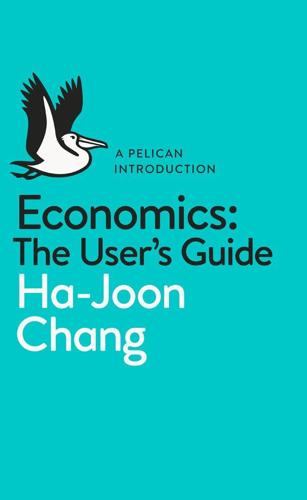
A Pelican Introduction Economics: A User's Guide
by
Ha-Joon Chang
Published 26 May 2014
A 2005 report by Christian Aid, the development charity, documents cases of under-priced exports like TV antennas from China at $0.40 apiece, rocket launchers from Bolivia at $40 and US bulldozers at $528 and over-priced imports such as German hacksaw blades at $5,485 each, Japanese tweezers at $4,896 and French wrenches at $1,089.17 The Starbucks and Google cases were different from those examples only in that they mainly involved ‘intangible assets’, such as brand licensing fees, patent royalties, interest charges on loans and in-house consultancy (e.g., coffee quality testing, store design), but the principle involved was the same. When TNCs evade taxes through transfer pricing, they use but do not pay for the collective productive inputs financed by tax revenue, such as infrastructure, education and R&D. This means that the host economy is effectively subsidizing TNCs. There are also other potentially negative effects of FDI for the host economy Transfer pricing is only one of the possible negative effects of FDI, especially when it comes to FDI into developing countries. Another one is that TNC subsidiaries may ‘crowd out’ local firms (in their own industry and in other industries) in the credit market.
…
These third countries were countries with a corporate tax rate that is lower than the UK rate (e.g., Ireland, Switzerland or the Netherlands) or even tax havens, namely, countries that attract foreign companies to set up ‘paper companies’ by charging very low, or even no, corporate taxes (e.g., Bermuda, the Bahamas).16 The age-old trick of transfer pricing Taking advantage of the fact that they operate in countries with different tax rates, TNCs have their subsidiaries over-charge or under-charge each other – sometimes grossly – so that profits are highest in those subsidiaries operating in countries with the lowest corporate tax rates. In this way, their global post-tax profit is maximized.
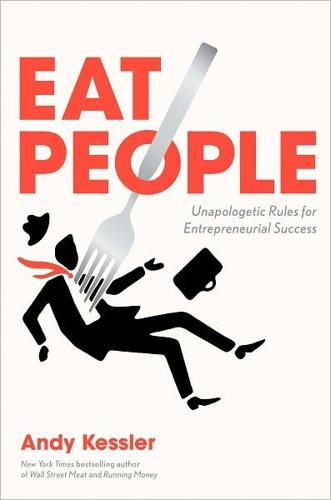
Eat People: And Other Unapologetic Rules for Game-Changing Entrepreneurs
by
Andy Kessler
Published 1 Feb 2011
The British Empire colonized much of the world to lock up the supply of raw materials (to feed their factories, and keep them out of French and German hands). But the reason a horizontal structure is the most efficient is twofold: price and pace. Prices are set by the marketplace. IBM was segmented in divisions that were supposedly independent, but one group would “sell” their output to the next at some phony transfer price, showing a “profit.” Every division might show a profit, but the company itself would still lose money because, in the real world, someone else sold the product more cheaply, which meant that competitors could get the same thing done for a lot less (and pass the savings along in the form of lower prices).
…
It could be internal prices or external prices with your customers. The price will be set by more than one person, the masses out at the edge, and therefore will be more reflective of actual profits—however profits are actually defined—than one person sitting in a room making up the “price.” It could be a transfer price between divisions, the price to use a conference room during peak hours, whatever. eBay made an entire business out of price discovery and then closing the financial part of the transaction. Not always an efficient market, but it was better than going to garage sales and estate markets trying to figure out the right price.
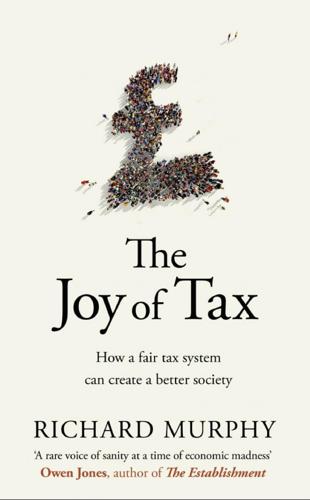
The Joy of Tax
by
Richard Murphy
Published 30 Sep 2015
App. 100, per Lord Cairns at page 122 8 http://www.hmrc.gov.uk/avoidance/gaar.htm 9 https://www.gov.uk/government/organisations/hm-revenue-customs/groups/hmrc-board 10 http://www.internationaltaxreview.com/Article/3201047/KPMG-Treasury-secondee-behind-UK-patent-box-hits-back-at-PAC-criticisms.html 11 http://www.publications.parliament.uk/pa/ld201415/ldhansrd/text/140716-0002.htm#1407172000119 12 http://www.standard.co.uk/comment/simon-jenkins-if-the-scots-can-get-taxraising-powers-so-should-london-9720747.html 13 http://www.thebureauinvestigates.com/2012/07/10/how-big-four-get-inside-track-by-loaning-staff-to-government 14 http://visar.csustan.edu/aaba/ProposedAccstd.pdf. I first created country-by-country reporting in 2003. 15 http://www.oecd-ilibrary.org/taxation/guidance-on-transfer-pricing-documentation-and-country-by-country-reporting_9789264219236-en 16 http://www.taxresearch.org.uk/Documents/CRDivCBCR2015.pdf 17 http://uncounted.org/2015/06/15/the-politics-of-country-by-country-reporting Chapter 6: The underpinnings of a good tax system 1 Adam Smith, The Wealth of Nations, 1776, Book V, Chapter II, Part II.
…
, 2008, Compass Thinkpiece. 10 https://www.atkearney.com/financial-institutions/featured-article/-/asset_publisher/j8IucAqMqEhB/content/the-shadow-economy-in-europe-2013/10192 11 http://www.americansfortaxfairness.org/files/TheWalmartWeb-June-2015-FINAL.pdf 12 http://visar.csustan.edu/aaba/ProposedAccstd.pdf 13 http://www.oecd.org/tax/guidance-on-transfer-pricing-documentation-and-country-by-country-reporting-9789264219236-en.htm 14 http://webarchive.nationalarchives.gov.uk/+/http://www.hmrc.gov.uk/history/taxhis1.htm accessed 26 November 2014 15 http://services.parliament.uk/bills/2012-13/generalantitaxavoidanceprinciple.html accessed 27 November 2014 Chapter 7: The policy decisions tax must impact 1 Male life expectancy at birth in 1945 was just 62.7 years, with women expecting 67.9 years of life. http://www.ons.gov.uk/ons/rel/social-trends-rd/social-trends/social-trends-41/health-data.xls.
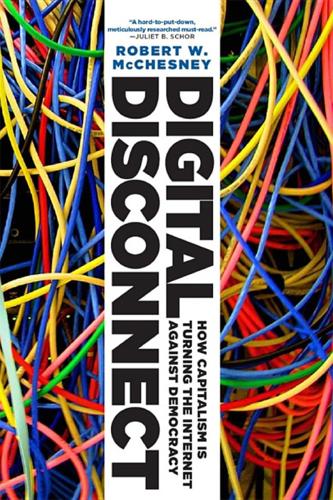
Digital Disconnect: How Capitalism Is Turning the Internet Against Democracy
by
Robert W. McChesney
Published 5 Mar 2013
Nicholas Shaxson describes aspects of the process in his 2011 book, Treasure Islands: In October 2010 a Bloomberg reporter explained how Google Inc. cut its taxes by $3.1 billion in the previous three years through transfer pricing games known by names such as the “Double Irish” and the “Dutch Sandwich,” ending up with an overseas tax rate of 2.4 percent. The problem is getting worse. Microsoft’s tax bill has been falling sharply, for similar reasons. Cisco is at it. They are all at it. Transfer pricing alone costs the United States an estimated $60 billion a year—and that is just one form of the offshore tax game.95 Apple, for example, has pioneered sophisticated accounting techniques that—although probably technically legal—are extraordinarily damaging to U.S. tax revenues.
…
See antiterrorism Texas, 110 Thiel, Peter, 29, 141, 142, 143 thinking, 11–12, 70 third-party Internet advertising, 156 This American Life, 192 Time Warner, 120, 123–24 Timpone, Brian, 192 Tobaccowala, Rishad, 155 Tocqueville, Alexis de: Democracy in America, 205 Torvalds, Linus, 103 transfer pricing, 145 Trans-Pacific Partnership treaty, 125 Treasure Islands (Shaxson), 144–45 Tribune Company, 192 Trilateral Commission, 59 Tunis, 163 Turkle, Sherry, 11 Turner, Derek, 106 Turner, Ted, 28 Turner Broadcasting v. FCC, 205 Turow, Joseph, 128, 146–47, 149, 152, 158, 188 Twitter, 137, 153, 165, 167, 179, 188 two-party system, 60 underemployment and unemployment, 47, 221, 225 unethical practices.
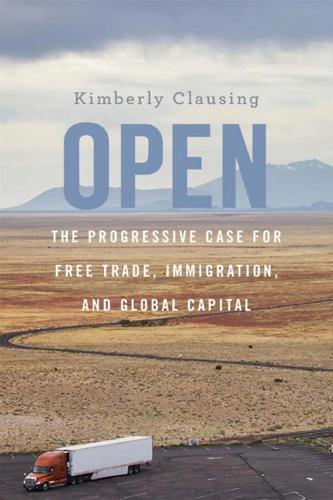
Open: The Progressive Case for Free Trade, Immigration, and Global Capital
by
Kimberly Clausing
Published 4 Mar 2019
While law requires companies to price such transactions as if they were occurring at “arm’s length” with unrelated entities, in practice these laws are difficult to enforce, as there is often substantial ambiguity regarding the true arm’s-length price. Evidence of tax-motivated transfer pricing is substantial; see Kimberly Clausing, “Tax-Motivated Transfer Pricing and US Intrafirm Trade Prices,” Journal of Public Economics 87:9 (2003), 2207–2223; Kimberly Clausing, “International Tax Avoidance US International Trade,” National Tax Journal 59:2 (2006), 269–287. 27. For examples of press coverage, see articles on tax avoidance by Jesse Drucker, including “Google 2.4% Rate Shows How $60 Billion Is Lost to Tax Loopholes,” Bloomberg, October 21, 2010, https://www.bloomberg.com/news/articles/2010-10-21/google-2-4-rate-shows-how-60-billion-u-s-revenue-lost-to-tax-loopholes.

Red Notice: A True Story of High Finance, Murder, and One Man's Fight for Justice
by
Bill Browder
Published 3 Feb 2015
Why share the profits with minority investors? What had they done to help? Nothing. With the brakes off, the oligarchs embarked on an orgy of stealing. The tools they used were many and with no law enforcement to stop them, their imaginations ran wild. They engaged in asset stripping, dilutions, transfer pricing, and embezzlement, to name but a few of their tricks. This was a huge problem that every business person in Russia was obsessed with, and because I’d developed a reputation after my fight with Sidanco, in early January 2000 I was invited by the American Chamber of Commerce in Moscow to give a presentation to the local business community about corporate-governance abuse.
…
I could have picked any Russian company, but Yukos was attractive because it had had so many minority-shareholder scandals. I called my presentation “The Armed Forces of Corporate Governance Abuse” to describe the many ways that the oligarchs went about ripping off their minority shareholders. The “Army” was transfer pricing; the “Navy,” asset stripping; and the “Marines,” shareholder dilutions. The presentation was scheduled for 8:00 on a snowy morning in January. As my alarm went off at 6:30, I could barely pull myself out of bed. The temperature outside was minus-twenty degrees Celsius, the streets were covered with a fresh coat of snow, and the sun had not yet risen.
…
See media; specific publications PricewaterhouseCoopers, 161 Prikhodko, Sergei, 171, 178 Princeton University, 13 Institute for Advanced Study, 13 privatizations, 36–37 in Eastern Europe, 36–37, 41, 53–54 in Poland, 36–39, 41, 54 in Russia, 54–63, 64–76, 87, 91–93, 98–101 voucher, 59–60, 67–70, 105 Proclamation 7750, 291, 293–94, 297, 298, 299–309, 327–39 Prutkov, Yuri, 57–58 Pulkovo Airport, 56 Pussy Riot, 365 Putin, Vladimir, 162, 165–69, 175, 183, 193, 280, 356–70 adoption ban law, 357–62 becomes president, 165 Browder and, 166–69, 175–77, 183–89, 236, 363–70, 375 inner circle, 175–76 leadership style, 359–62 Magnitsky case and, 302, 328, 344, 356–62, 363–70, 373–74 oligarchs and, 165–69, 183 response to Magnitsky Act, 356–62 radio, 236 Rassokhov, Rostislav, 224 Reagan, Ronald, 301 recessions, 131 1998 Asian crisis, 131–32 Reid, Harry, 353 Renaissance Capital, 117–20, 219, 220, 222 Republic National Bank, 72, 138 HSBC takeover of, 138–39, 142 Rettman, Andrew, 375–76 Reuters, 46, 115, 116, 126, 128, 181–82, 185 Rilend, 213, 214, 234, 235 Riyadh, 220 Robertson, Geoffrey, 378–79 Robertson, Julian, 70 and n Romney, Mitt, 346 Roosevelt, Eleanor, 14 Roosevelt, Franklin D., 12, 14 Rostelecom, 69 Rozhetskin, Leonid, 118–20, 124 Russia (post-Soviet), 1–11, 156–57 adoption ban law, 357–62 Audit Chamber, 161 bond market, 132–38 Border Service, 194, 195, 242, 312 Browder banned from, 11–13, 169, 170–89, 193 Browder’s trial in abstentia, 364–70 bureaucracy, 158, 232 business culture, 125 conspiracy theories, 166 corporate-governance abuse, 144–49, 165–69 dachas, 104, 156, 249 economy, 60, 87 fall of communism, 2–3, 59–60, 112, 158, 291 fatalism, 298 food, 67, 87 Foreign Ministry, 172–73 Gazprom theft and investigation, 154–62, 192–93 gulags, 96–97, 274 human rights atrocities, 279–80, 301, 328, 373, 376 IMF bailout, 133–34 independent thinkers penalized in, 6, 96–97, 163–65 Interior Ministry, see Interior Ministry literature, 96, 298 Mafia, 150, 241, 289 May holidays, 151 National Police Day, 327–28 1993 attempted coup, 197 1996 presidential elections, 87–93, 94–103 1998 financial crisis and aftermath, 131–46 oil and gas, 60, 69, 98–101, 104–30, 143–44, 167–69 oligarchs, see oligarchs, Russian orphans, 357–62 Parliament, 161, 340–44, 356, 357 and n, 358–60 persecuted journalists in, 303 police raids on Hermitage offices, 196–200, 203, 208–10, 216, 218, 230 Politburo, 156 press, 91, 182, 214, 236, 252, 264, 288, 301, 359, 365 privatizations in, 54–63, 64–76, 87, 91–93, 98–101 raider attacks, 213–27 Red Notice for Browder, 367–70, 374 response to Magnitsky Act, 356–62 roads, 243 Salomon operations in, 54–63, 64–76 shipping, 55–59 stocks, 3, 54–63, 64–76, 98–130, 133–38, 144–45, 183–85, 198 tax law, 201–4 tax-rebate fraud, 231–37, 252–53, 257, 264, 271–72, 288, 301, 316–26, 328 theft of government money, 231–37, 236–53, 257, 264, 271–72, 288, 296, 301, 311, 316–26, 328 transition to capitalism, 59–60, 87 Ukraine invaded by, 373 visa sanctions and asset freezes on corrupt officials, 291, 293–94, 297, 298, 299–309, 327–29, 368, 373, 377 voucher privatization, 59–60, 67–70, 105 wealth gap, 156–57 women, 147, 254 as WTO member, 333–34 Yeltsin’s economic reforms, 87, 91 Russian Central Bank, 233, 234 Russian General Prosecutor’s Office, 262, 285, 287, 314 Russian raider attack, 213–27 Russian State Investigative Committee, 220–26, 232–33, 252 russian-untouchables.com, 313 Russian Untouchables videos, 310–15, 321–26, 343 Safra, Edmond, 72–76, 131, 138–39, 365 death of, 142 Hermitage Fund and, 72–76, 77–88, 93, 94, 98, 100–102, 112, 119–32, 138–39, 142 Sagiryan, Igor, 219–23, 317 Saint Petersburg, 56, 186, 212, 213, 217, 223, 229 Salomon Brothers, 52–76, 79, 106, 225 Browder at, 52–76, 77 “five times” formula, 53, 54 London trading floor, 64–70 Treasury bond scandal, 52, 65 Samolov, Boris, 254 San Francisco, 70, 272 Sanok, 30–39 Saudi Arabia, 220 Sberbank, 165 Scandinavian Airlines, 367 Schmidt, Wolfgang, 27–31, 35, 38, 40 Scott, Kyle, 290–95, 329, 333 Securities and Exchange Commission (SEC), 52, 176 Senate, US, 302, 305, 307, 330–39, 346, 354–55 Finance Committee, 336, 340, 344 Foreign Relations Committee, 290, 330–39 Magnitsky Act and, 327–39, 340 Seoul, 210–13, 250, 251 Severov, Dmitry, 106–7 Shanghai, 2 Shao, Jude, 2, 3, 5, 6, 9 Sheremetyevo Airport, 2–10, 95, 169, 243–44 Shuvalov, Igor, 174, 176, 178 Siberia, 69, 104 oil, 69, 104, 110, 159 Sibneftegaz, 159 Sidanco, 104–30, 134–35, 219, 363 dilutive share issue, 115–30 FSEC investigation of, 127–29 Siemens, 92 Sikorsi, Leschek, 32–38 Silchenko, Oleg, 258–60, 265, 267, 275–76, 277, 283, 327–28 Siluyanov, Anton, 358 Smith, Simon, 170–72, 181, 182, 186–87, 256 Snob, 359 Sochi, 242 Sokolova, Ksenia, 359 Solent, David, 51 Soros, George, 70 and n, 92, 122 South Africa, 71, 114–15, 117 apartheid, 114 South Korea, 131, 210–13 Soviet Union, 12, 24, 157, 253 fall of, 2–3, 59, 112, 158, 280, 334 Jews, 334 Katyn massacre, 279–80 World War II, 13, 228, 279–80 See also Russia (post-Soviet) Spain, 312 Stalin, Joseph, 6, 364 Stanford University, 2, 20–21, 106, 272, 376 Stashina, Yelena, 267, 275–76 State Department, US, 289 Magnitsky case and, 289–97, 302, 304, 329, 341 Proclamation 7750, 291, 293–94, 297, 298, 299–309, 327–39 stealing analysis, 155–60 steel, 60 Steinmetz, Beny, 71–76, 83–84, 138 Stepanov, Vladlen, 316, 319, 321–26 Swiss bank accounts, 316–26, 343 YouTube video on, 321–23, 325–36, 343 Stepanova, Olga, 316, 319, 321–26 Swiss bank accounts, 316–26, 343 as Tax Princess, 326 YouTube video on, 321–23, 325–26, 343 Stern, Carl, 24 stocks Chinese wall and, 64 front-running, 183–84 Gazprom theft and investigation, 154–62 liquidity, 132 MNPZ, 98–100 1998 financial crisis and aftermath, 131–46 preferred shares, 98–101 Russian, 3, 54–63, 64–76, 98–130, 133–38, 144–45, 183–85, 198 share dilution, 115–30, 144–45 Sidanco, 104–30 tourist, 99 Stoppard, Tom, 350 Summer Olympics (1980), 3 Summers, Larry, 133, 134 Sunday Express, 314 Sunday Observer, 187 Sunday Telegraph, 2 Surgutneftegaz, 69 surveillance, 221–23, 241–42, 317–18 Switzerland, 88, 89 bank accounts and Magnitsky case, 316–26, 343 Syria, 357 Tarkosaleneftegaz, 156 Tatar Republic, 111 Tatarstan, 214, 229, 238 Tatneft, 111 Tatum, Paul, 126–27 tax-rebate fraud, 231–37, 252–53, 257, 264, 271–72, 288, 301, 316–26, 328 Swiss bank accounts and, 316–26, 343 telephone, 69, 191 television, 91, 365 Templeton, Sir John, 70 and n Templeton Asset Management, 70n “ten bagger,” 39 tennis, 163 Thailand, 131, 191, 210 Tiger Management Corp., 70n Time magazine, 12, 131 Tokyo, 28, 55, 211 Tom Lantos Human Rights Commission, 302 Toronto, 70 Trammell Crow, 21 transfer pricing, 144 Truman, Harry, 13 Tuesdays with Morrie, 149–50 Turkey, 162, 191, 312 Turner, Fred, 338 Tverskoi District Court, 365 UK Law Society, 262 Ukraine, 30, 242 Russian invasion of, 373 Unified Energy System (UES), 69, 165 United Arab Emirates, 191 United States, 256, 312 beef, 334, 336 communism in, 12–14, 26, 27 Depression, 12 IMF bailout of Russian bond market and, 133–34 Magnitsky case and, 262–63, 269, 289–97, 298–309, 327–39, 340–55, 356 Russian adoption ban and, 357–62 Treasury bond market, 52, 65 Wall Street, 119, 144, 376 World War II, 13 United Steelworkers, 23 Universal Savings Bank, 233–34 University of Chicago, 14, 15, 19 University of Colorado, Boulder, 18 Ural Mountains, 274 Vasiliev, Dmitry, 127–29 Vedomosti, 182, 214, 236 Velvet Revolution, 27 Vienna, 14 Vietnam War, 2, 306 visa sanctions and asset freezes, 291, 293–94, 297, 298, 299–309, 327–39, 368, 373, 377 Vladivostok, 287 Volgograd, 225–26 von Pierer, Heinrich, 92 Voronezh, 246 Voronin, Victor, 257 voucher auctions, 68–69 voucher privatization, 59–60, 67–70, 105 Vyakhirev, Andrey, 159 Vyakhirev, Gennady, 159 Vyakhirev, Rem, 159, 162 Vyugin, Oleg, 176, 178 Wall Street (film), 119 Wall Street Journal, 2, 48, 49, 126, 148, 160, 182 Warsaw, 31, 35 Washington, D.C., 263, 269, 289–97, 298–309, 327–39, 340–50 Washington Post, 160, 180, 263–64, 330 Welch, Jack, 92 Weyerhaeuser pension fund, 122 Whiteman School, Steamboat Springs, Colorado, 15–17 Wicker, Roger, 327, 335 and n, 341 Winer, Jonathan, 289–91, 293, 295, 297 Wolosky, Lee, 147 World Bank, 27–31, 38, 134 World Economic Forum, Davos in 1996, 88–93 in 2007, 191–95 in 2013, 363 World Trade Organization (WTO), 333 World War II, 13, 228, 279–80, 369 Yale University, 14, 20 Year of Living Dangerously, The (film), 24 Yeltsin, Boris, 87 economic reforms, 87, 91 1996 presidential elections, 87–94, 97–98, 101–3 YouTube, 264, 310–15, 321–26, 327 Hermitage video, 264–65, 271–72, 310 Karpov video, 313, 314–15, 322–23, 343 Kuznetsov video, 313–15, 322–23, 343 Russian Untouchables videos, 310–15, 321–26, 343 Stepanova video, 321–23, 325–26, 343 Yucaipa, 81 and n Yuganskneftegaz, 111 Yukos, 144, 145, 167, 183, 257 oligarch corruption, 167–69 Zurich, 70, 89 Zyuganov, Gennady, 87, 89, 91–93, 100, 102–3 Simon & Schuster 1230 Avenue of the Americas New York, NY 10020 www.SimonandSchuster.com Copyright © 2015 by Hermitage Media Limited Certain names and identifying characteristics have been changed.
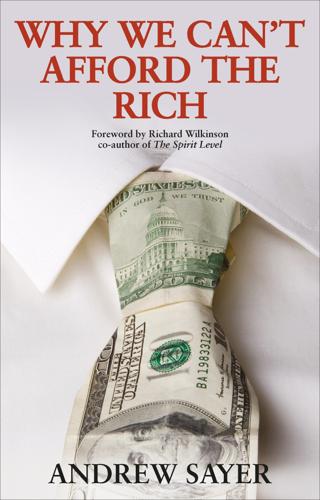
Why We Can't Afford the Rich
by
Andrew Sayer
Published 6 Nov 2014
These strategies, known to lawyers as the double Irish and the Dutch sandwich, helped Google to reduce its overseas tax rate to 2.4%.65 Margaret Hodge, who chairs the UK parliament’s Public Accounts Committee, took Google’s UK Vice-President, Matt Brittin, to task over this: ‘You are a company that says you “do no evil”. And I think that you do do evil.’ Hodge, who has repeatedly challenged rich and irresponsible business leaders, was condemned by the Treasury for ‘grandstanding’ and scaring off foreign investment.66 Transfer pricing is a business in itself: in 2009, accountancy firm Ernst & Young employed 900 staff just on working out transfer pricing packages to sell to companies.67 Many major multinationals each employ hundreds of lawyers and accountants to work out ever more ingenious ways of avoiding tax. Yet at the time, the UK’s tax authority, Her Majesty’s Revenue and Customs (HMRC), employed only 600 workers to check the affairs of 700 companies, and only about 100 of those deal with tax avoidance.
…
It operates as a hugely powerful lobbying agency for financial interests.58 Uniquely, it has an official, known as the ‘remembrancer’, with an annual budget of £6 million, who is allowed to sit in the House of Commons and vet legislation to protect the interests of the City.59 The Corporation has been immensely successful in its mission, though it got a helping hand in 1996 from Tony Blair, who reversed the Labour Party’s long-standing opposition to it and endorsed and extended its power.60 The position of the City at the centre of the UK’s tax haven network is reflected in the webpage of Mark Boleat, the Corporation’s current Policy and Resources Committee chair and chief lobbyist: it tells us that he was born in Jersey, was formerly a member of the Gibraltar Financial Services Commission and currently has non-executive positions that include the States of Jersey Development Company and Chair of the Channel Islands Competition and Regulatory Authorities.61 ‘Transfer pricing’ – or ‘mis-pricing’ – is another key to the havens’ existence. Multinational companies can play off countries against each other to minimise tax by rigging their accounts. They can shift profits across borders to where taxes are lowest, minimising their declared profits where taxes are relatively high – even if those places are also where they do most business.
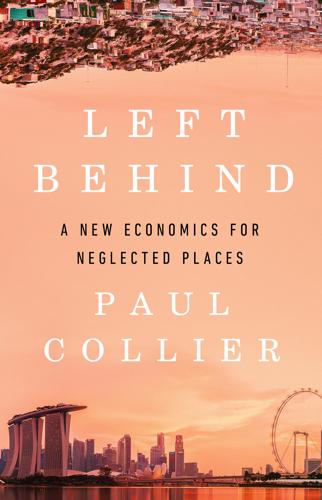
Left Behind
by
Paul Collier
Published 6 Aug 2024
Further clouding the picture to the advantage of the resource companies, the company registered for tax purposes will be a local subsidiary, such as Mega-Oil-Chad. That subsidiary will sell its crude oil either to the parent company, or to another subsidiary such as Mega-Oil-Antilles. Mega-Oil-Antilles will pay Mega-Oil-Chad an internally agreed ‘transfer price’. The lower the transfer price, the more profit can be shifted from Chad to Antilles. Similarly, Mega-Oil-Chad will, quite legitimately, buy services and borrow finance from its parent, or from another subsidiary, and again these will be priced.v The upshot is that profits can be shifted from high-tax countries to low-tax ones: the companies end up with even more than $44 per barrel.

The King of Oil: The Secret Lives of Marc Rich
by
Daniel Ammann
Published 12 Oct 2009
On the contrary—and rather surprisingly for someone who for the last twenty-five years has been labeled one of the greatest tax fraudsters—Rich maintains his innocence. Of course he tried to minimize his taxes, he admits. Of course he funneled his profits to Switzerland, where the tax burden is substantially lower than in the United States. Of course his companies practiced “transfer pricing.” Every international company does. Rich makes an effort not to sound too apologetic when stressing his innocence. “I never crossed the border of legality. Everything I did was perfectly in order. I never broke the law. I did nothing wrong.” “A Scapegoat Was Needed” For the first time ever, Marc Rich is willing to discuss his international trading activities.
…
Moritz), 7–8 Sweet Pain of Love, 218 Swissair Flight 111, 113–14 Swiss Federal Act on International Mutual Assistance in Criminal Matters (IMAC), 126–27, 284n Swiss Office for Police Matters, 128–29 Swiss Penal Code, 115, 152–53 Swiss tax treaty, 120–21, 125–27 Switzerland, 76–78, 125–34 extradition of Marc Rich, 128–34, 149–50 flight of Marc Rich to, 109–11, 113–16, 125–26, 201–2 “Sympathy for the Devil” (song), 7 Syria, 54, 72, 202 Taba Summit, 259 Tachkemoni School, 28 Tanker trade, 84–85, 189–90 Tapies, Antony, 10 Tax evasion and fraud, 8–9, 116–17, 125–28, 136–37, 145–47, 167–71 Texaco, 55–57 Thomajan, Bob, 110 Time (magazine), 137 Tin, 41, 44, 227 Torre de Madrid, 49 Trade liberalization, 267 Trader principle, 180–81 Trafford, John, 75–76, 80, 83, 115 Transaction costs, 85, 176 Trans-Asiatic Oil Ltd., 65–66 “Transfer pricing,” 145 Trau, René, 34, 217 Trillin, Calvin, 33–34 Troland, John, 107, 119 Trust, 40, 78, 86–88 Trust (Fukuyama), 86–87 Tucholsky, Kurt, 25 Tunisia, 14, 53, 63 Turkey, 82 20th Century Fox, 108, 111, 122, 123 20/20 (TV program), 254 UNITA (National Union for the Total Independence of Angola), 183–85 United Nations Human Rights Commission, 199 United Nations Oil-for-Food Programme, 231–32 United Nations Security Council, 191 United States of America v.
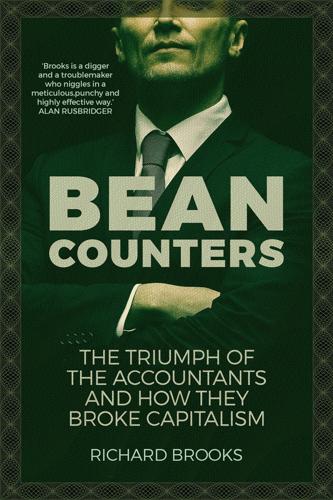
Bean Counters: The Triumph of the Accountants and How They Broke Capitalism
by
Richard Brooks
Published 23 Apr 2018
Under arrangements sanctioned by KPMG, around $400m of the public company’s profits were stripped out between 1997 and 2003 into tax haven companies controlled by Black and his associates. These companies, claimed the Canadian press baron, owned his uniquely valuable management expertise and deserved the hundreds of millions of dollars they received. So-called ‘transfer pricing’ rules dictate that payments for goods or services by related companies should be at levels that would be agreed between independent parties operating at ‘arm’s length’ from each other. This is to prevent profits being artificially shifted into lower tax areas by, for example, overpaying fees to a tax haven company.
…
Paul Gillis, visiting professor of accounting at Peking University’s Guanghua School of Management, quoted in Dinny McMahon and Michael Rapoport, ‘Challenges Auditing Chinese Firms’, Wall Street Journal, 12 July 2011. 35. Luxembourg Leaks: Global Companies’ Secrets Exposed, https://www.icij.org/project/luxembourg-leaks. 36. Lawrie Holmes and Alex Hawkes, ‘Big Four Auditors “Embedded in Offshore World”’, Financial Mail, 29 January 2011. 37. Tax Efficient Supply Chain Management and Transfer Pricing, presentation by Srinivasa Rao, partner, Ernst & Young, International Fiscal Association conference, 13 December 2008. 38. Proposal to work with Heineken on the design and implementation of a new group purchasing company, September 2010, PriceWaterhouse Coopers LLP, https://docs.google.com/viewer?
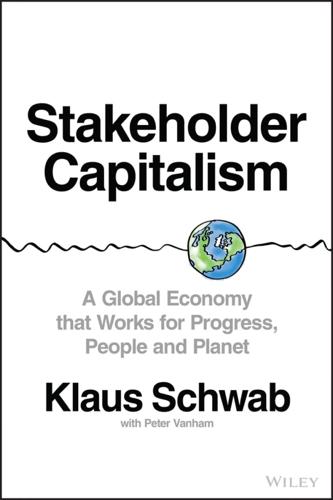
Stakeholder Capitalism: A Global Economy That Works for Progress, People and Planet
by
Klaus Schwab
Published 7 Jan 2021
Former automobile manufacturing towns such as Genk, Belgium, for example, to this day have not recovered from the loss of their car plants, suffering still from higher unemployment rates, lower wages, and a weaker economic growth path. For many of the companies deriving a lot of their profits from intellectual property, transfer pricing and differing tax rules across legislatures allowed them to move profits separately from production, depriving governments of oft much-needed tax incomes. Free trade of course implies companies must be able to seek opportunities where they arise, and in fact they must do so at a healthy rate for globalization to work.
…
Many companies active in Internet technology offer their services for free, meaning there is no price to regulate or tax to levy at the product level. And with almost all of the leading tech firms being American or Chinese but globally active, many national governments have not been able to tax profits either, which are often shielded through transfer pricing and IP-related exemptions. If citizens and governments everywhere want to share in the wealth creation of these companies, different regulatory and tax frameworks will need to be set up and implemented. And then there is a final consideration: even if we get the Fourth Industrial Revolution right, there is still another global crisis we need to address as well: the ongoing climate crisis.
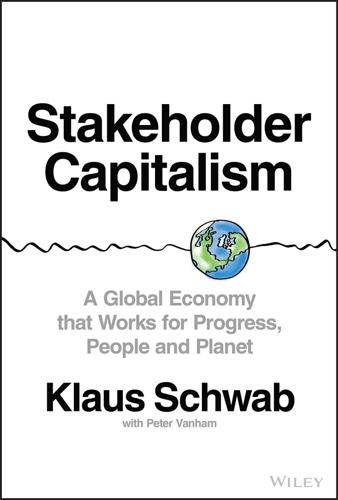
Stakeholder Capitalism: A Global Economy That Works for Progress, People and Planet
by
Klaus Schwab
and
Peter Vanham
Published 27 Jan 2021
Former automobile manufacturing towns such as Genk, Belgium, for example, to this day have not recovered from the loss of their car plants, suffering still from higher unemployment rates, lower wages, and a weaker economic growth path. For many of the companies deriving a lot of their profits from intellectual property, transfer pricing and differing tax rules across legislatures allowed them to move profits separately from production, depriving governments of oft much-needed tax incomes. Free trade of course implies companies must be able to seek opportunities where they arise, and in fact they must do so at a healthy rate for globalization to work.
…
Many companies active in Internet technology offer their services for free, meaning there is no price to regulate or tax to levy at the product level. And with almost all of the leading tech firms being American or Chinese but globally active, many national governments have not been able to tax profits either, which are often shielded through transfer pricing and IP-related exemptions. If citizens and governments everywhere want to share in the wealth creation of these companies, different regulatory and tax frameworks will need to be set up and implemented. And then there is a final consideration: even if we get the Fourth Industrial Revolution right, there is still another global crisis we need to address as well: the ongoing climate crisis.
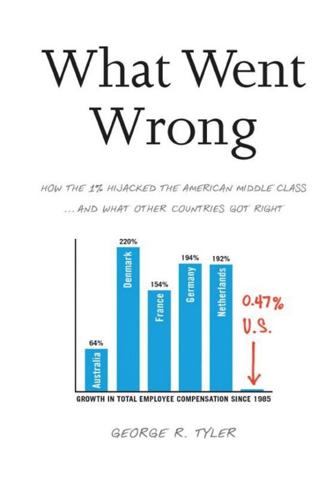
What Went Wrong: How the 1% Hijacked the American Middle Class . . . And What Other Countries Got Right
by
George R. Tyler
Published 15 Jul 2013
Google funneled $5.4 billion in royalties during 2009 through that tax haven, a practice that cut its US tax bill by $3.1 billion during 2007–2009.41 Another tax-sheltering tactic involves juggling the price of production inputs to cut taxes. This practice of intentionally mispricing intermediate goods is so widespread that it has its own category; “transfer pricing” enabled Chevron and Texaco to save $3.25 billion in taxes between 1970 and 2000 by overpricing oil bought from a subsidiary in low-tax Indonesia for sale in the United States. Inflated prices on inputs from abroad result in low taxable profits on US sales, with profits recorded in low-tax nations.
…
Those outlets are profitable, but manipulate cash flows to report no profit to tax authorities there. The coffee chain paid no tax because its European corporate headquarters in Netherlands imposes a hefty franchising fee, 6 percent of sales in the case of Starbucks, roughly comparable to profits. Moreover, in a transfer-pricing stratagem, Starbucks adds an extravagant 20 percent cost margin on all coffee sold in bulk to its European stores, imposed internally by offices in the tax haven of Switzerland.47 Thus, European profits end up being recorded in Switzerland and Dutch tax havens in the Caribbean.48 Google dodges taxes on its European sales in a similar fashion, shuttling billions in profits between subsidiaries in Ireland and Netherlands that end up in tax-free Bermuda.
…
Internationally, that means adopting something resembling a global tax information system patterned on the Common Consolidated Corporate Tax Base concept, credentialed editorially by the Financial Times.72 In 2012, the European Parliament also endorsed that concept which would resolve uncertainty around complex issues such as digitized sales and transfer pricing exploited by firms such as Apple.73 The EU’s first step was to require country-by-country reporting of income and taxes in 2014. This applies just to banks, however, and uniformity in tax rates will be facilitated by widespread adoption of a comprehensive international database of corporate sales and expenses from all economic sectors, greatly aiding those officials hoping to stem the race to the bottom in corporate tax rates.* Fairness and ending tax dodging are important, but there are also important economic reasons for the United States to support international tax conformity.
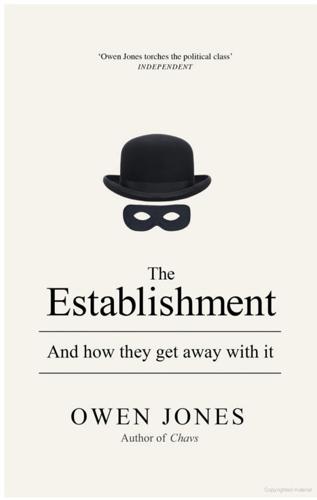
The Establishment: And How They Get Away With It
by
Owen Jones
Published 3 Sep 2014
It was a lucrative business for the Big Four, worth £2 billion in Britain alone. As the Public Accounts Committee pointed out, HMRC could not even hope to compete with the resources of the accountancy firms, meaning they had to depend on their expertise. The firms could boast four times as many workers as HMRC in the field of ‘transfer pricing’ – a euphemistic accountancy term that refers to the shifting of taxable profits to places with lower tax. As well as staffing tax-advisory panels, the Big Four second members of their team to the Treasury. The civil service proudly champions secondment, claiming that ‘it allows people from different organizations to learn from each other and share good practice’, as well as giving ‘organizations outside the civil service a useful insight into the workings of central government’.2 Secondment, though, has everything to do with the Establishment mentality of blurring the lines between the private and public sectors, and pushing for the ever-greater influence of business in the state machinery.
…
Starbucks’ defence was that, despite having 735 British outlets, it was reporting losses year after year, and thus was not eligible for corporation tax: it paid no corporation tax whatsoever between 2009 and 2013. Privately, Starbucks was telling its investors and analysts that it was profitable in Britain, and even suggested it as an example to emulate back in the United States. In reality, the company was routing profits to the Netherlands and Switzerland using offshore licensing and transfer pricing. Its thirty Swiss stores were reporting a 20 per cent profit margin. The company charged its British subsidiary a royalty fee worth 6 per cent of total sales for using ‘intellectual property’ such as the Starbucks brand. The company had a secretive, profitable tax arrangement with the Dutch government, and paid just a 12 per cent tax rate in Switzerland.
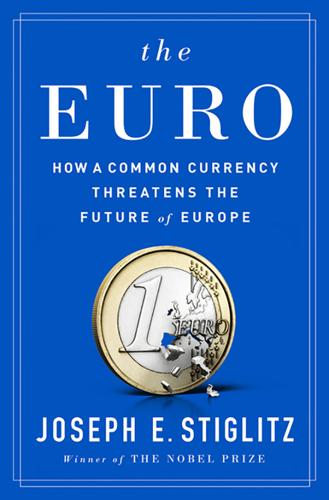
The Euro: How a Common Currency Threatens the Future of Europe
by
Joseph E. Stiglitz
and
Alex Hyde-White
Published 24 Oct 2016
Multinationals can easily claim that their profits are earned in a low-tax jurisdiction. The mechanics by which this is done need not detain us here. In today’s globalized world, production of a final good entails multiple steps, and firms have considerable discretion in determining where, along the production line, true value added occurs. The system is called the “transfer price system,” because companies pretend that they buy and sell partially completed goods from one country to another. The prices are supposed to be arm’s-length prices; the problem is that in the case of most of these partially completed goods, there does not exist a true market to determine the value. 30 An international commission of which I was a member, the Independent Commission for the Reform of International Corporate Taxation, proposed an alternative, and at a major UN conference on Finance for Development meeting in Addis Abba in July 2015, the developing and emerging markets, led by India, virtually unanimously supported beginning a UN process to look at these alternatives.
…
Africa, 10, 95, 381 globalization and, 51 aggregate demand, 98, 107, 111, 118–19, 189, 367 deflation and, 290 lowered by inequality, 212 surpluses and, 187, 253 tech bubble slump in, 250 as weakened by imports, 111 aggregate supply, 99, 104, 189 agricultural subsidies, 45, 197 agriculture, 89, 224, 346 airlines, 259 Akerlof, George, 132 American Express, 287 Apple, 81, 376 Argentina, 18, 100, 110, 117, 371 bailout of, 113 debt restructuring by, 205–6, 266, 267 Arrow-Debreu competitive equilibrium theory, 303 Asia, globalization and, 51 asset price bubbles, 172 Athens airport, 191, 367–68 austerity, xvi–xvii, 9, 18–19, 20, 21, 28–29, 54, 69–70, 95, 96, 98, 97, 103, 106, 140, 150, 178, 185–88, 206, 211, 235, 316–17 academics for, 208–13 debt restructuring and, 203–6 design of programs of, 188–90 Germany’s push for, 186, 232 government investment curtailed by, 217 opposition to, 59–62, 69–70, 207–8, 315, 332, 392 private, 126–27, 241–42 reform of, 263–65 Austria, 331, 343 automatic destabilizers, see built-in destabilizers automatic stabilizers, 142, 244, 247–48, 357 flexible exchange rate as, 248 bail-ins, 113 bailouts, 91–92, 111, 112–13, 201–3, 354, 362–63, 370 of banks, 127–28, 196, 279, 362–63 of East Asia, 202 of Latin America, 202 of Mexico, 202 of Portugal, 178–79 of Spanish banks, 179, 199–200, 206 see also programs balanced-budget multiplier, 188–90, 265 Balkans, 320 bank capital, 284–85 banking system, in US, 91 banking union, 129–30, 241–42, 248, 263 and common regulations, 241 and deposit insurance, 241, 242, 246 Bank of England, 359 inflation target of, 157 Bank of Italy, 158 bankruptcies, 77, 94, 102, 104, 346, 390 super–chapter 11 for, 259–60 banks, 198–201 bailouts of, 127–28, 196, 279, 362–63 capital requirements of, 152, 249 closing of, 378 credit creation by, 280–82 development, 137–38 evolution of, 386–87 forbearance of regulations on, 130–31 Greek, 200–201, 228–29, 231, 270, 276, 367, 368 lending contracted by, 126–27, 246, 282–84 money supply increased by, 277 restructuring of, 113 small, 171 in Spain, 23, 186, 199, 200, 242, 270, 354 too-big-to-fail, 360 bank transfers, 49 Barclays, 131 behavioral economics, 335 Belgium, 6, 331, 343 belief systems, 53 Berlin Wall, 6 Bernanke, Ben, 251, 351, 363, 381 bilateral investment agreement, 369 Bill of Rights, 319 bimetallic standard, 275, 277 Blanchard, Olivier, 211 bonds, 4, 114, 150, 363 confidence in, 127, 145 Draghi’s promise to support, 127, 200, 201 GDP-indexed, 267 inflation and, 161 long-term, 94 restructuring of, 159 bonds, corporate, ECB’s purchase of, 141 borrowing, excessive, 243 Brazil, 138, 370 bailout of, 113 bread, 218, 230 Bretton Woods monetary system, 32, 325 Brunnermeier, Markus K., 361 Bryan, William Jennings, xii bubbles, 249, 381 credit, 122–123 real estate, see real estate bubble stability threatened by, 264 stock market, 200–201 tech, 250 tools for controlling, 250 budget, capital, 245 Buffett, Warren, 287, 290 built-in destabilizers, 96, 142, 188, 244, 248, 357–58 common regulatory framework as, 241 Bulgaria, 46, 331 Bundesbank, 42 Bush, George W., 266 Camdessus, Michel, 314 campaign contributions, 195, 355 Canada, 96 early 1990s expansion of, 209 in NAFTA, xiv railroad privatization in, 55 tax system in, 191 US’s free trade with, 45–46, 47 capital, 76–77 bank, 284–85 human, 78, 137 return to, 388 societal vs. physical, 77–78 tax on, 356 unemployment increased by, 264 capital adequacy standards, 152 capital budget, 245 capital controls, 389–90 capital flight, 126–34, 217, 354, 359 austerity and, 140 and labor flows, 135 capital flows, 14, 15, 25, 26, 27–28, 40, 116, 125, 128, 131, 351 economic volatility exacerbated by, 28, 274 and foreign ownership, 195 and technology, 139 capital inflows, 110–11 capitalism: crises in, xviii, 148–49 inclusive, 317 capital requirements, 152, 249, 378 Caprio, Gerry, 387 capture, 158–60 carbon price, 230, 260, 265, 368 cash, 39 cash flow, 194 Catalonia, xi CDU party, 314 central banks, 59, 354, 387–88 balance sheets of, 386 capture of, 158–59 credit auctions by, 282–84 credit creation by, 277–78 expertise of, 363 independence of, 157–63 inequality created by, 154 inflation and, 153, 166–67 as lender of last resort, 85, 362 as political institutions, 160–62 regulations and, 153 stability and, 8 unemployment and, 8, 94, 97, 106, 147, 153 CEO compensation, 383 Chapter 11, 259–60, 291 childhood poverty, 72 Chile, 55, 152–53 China, 81, 98, 164, 319, 352 exchange-rate policy of, 251, 254, 350–51 global integration of, 49–50 low prices of, 251 rise of, 75 savings in, 257 trade surplus of, 118, 121, 350–52 wages controlled in, 254 as world’s largest economy, 318, 327 chits, 287–88, 290, 299–300, 387, 388–389 Citigroup, 355 climate change, 229–30, 251, 282, 319 Clinton, Bill, xiv, xv, 187 closing hours, 220 cloves, 230 cognitive capture, 159 Cohesion Fund, 243 Cold War, 6 collateral, 364 collective action, 41–44, 51–52 and inequality, 338 and stabilization, 246 collective bargaining, 221 collective goods, 40 Common Agricultural Policy, 338 common regulatory framework, 241 communism, 10 Community Reinvestment Act (CRA), 360, 382 comparative advantage, 12, 171 competition, 12 competitive devaluation, 104–6, 254 compromise, 22–23 confidence, 95, 200–201, 384 in banks, 127 in bonds, 145 and structural reforms, 232 and 2008 crisis, 280 confirmation bias, 309, 335 Congress, US, 319, 355 connected lending, 280 connectedness, 68–69 Connecticut, GDP of, 92 Constitutional Court, Greek, 198 consumption, 94, 278 consumption tax, 193–94 contract enforcement, 24 convergence, 13, 92–93, 124, 125, 139, 254, 300–301 convergence criteria, 15, 87, 89, 96–97, 99, 123, 244 copper mines, 55 corporate income tax, 189–90, 227 corporate taxes, 189–90, 227, 251 corporations, 323 regulations opposed by, xvi and shutdown of Greek banks, 229 corruption, 74, 112 privatization and, 194–95 Costa, António, 332 Council of Economic Advisers, 358 Council of State, Greek, 198 countercyclical fiscal policy, 244 counterfactuals, 80 Countrywide Financial, 91 credit, 276–85 “divorce”’s effect on, 278–79 excessive, 250, 274 credit auctions, 282–84 credit bubbles, 122–123 credit cards, 39, 49, 153 credit creation, 248–50, 277–78, 386 by banks, 280–82 domestic control over, 279–82 regulation of, 277–78 credit default swaps (CDSs), 159–60 crisis policy reforms, 262–67 austerity to growth, 263–65 debt restructuring and, 265–67 Croatia, 46, 331, 338 currency crises, 349 currency pegs, xii current account, 333–34 current account deficits, 19, 88, 108, 110, 120–121, 221, 294 and exit from euro, 273, 285–89 see also trade deficit Cyprus, 16, 30, 140, 177, 331, 386 capital controls in, 390 debt-to-GDP ratio of, 231 “haircut” of, 350, 367 Czech Republic, 46, 331 debit cards, 39, 49 debtors’ prison, 204 debt restructuring, 201, 203–6, 265–67, 290–92, 372, 390 of private debt, 291 debts, xx, 15, 93, 96, 183 corporate, 93–94 crisis in, 110–18 in deflation, xii and exit from eurozone, 273 with foreign currency, 115–18 household, 93–94 increase in, 18 inherited, 134 limits of, 42, 87, 122, 141, 346, 367 monetization of, 42 mutualization of, 242–43, 263 place-based, 134, 242 reprofiling of, 32 restructuring of, 259 debt-to-GDP ratio, 202, 210–11, 231, 266, 324 Declaration of Independence, 319 defaults, 102, 241, 338, 348 and debt mutualization, 243 deficit fetishism, 96 deficits, fiscal, xx, 15, 20, 93, 96, 106, 107–8, 122, 182, 384 and balanced-budget multiplier, 188–90, 265 constitutional amendment on, 339 and exit from euro, 273, 289–90 in Greece, 16, 186, 215, 233, 285–86, 289 limit of, 42, 87, 94–95, 122, 138, 141, 186, 243, 244, 265, 346, 367 primary, 188 problems financing, 110–12 structural, 245 deficits, trade, see trade deficits deflation, xii, 147, 148, 151, 166, 169, 277, 290 Delors, Jacques, 7, 332 democracy, lack of faith in, 312–14 Democracy in America (Tocqueville), xiii democratic deficit, 26–27, 35, 57–62, 145 democratic participation, xix Denmark, 45, 307, 313, 331 euro referendum of, 58 deposit insurance, 31, 44, 129, 199, 301, 354–55, 386–87 common in eurozone, 241, 242, 246, 248 derivatives, 131, 355 Deutsche Bank, 283, 355 devaluation, 98, 104–6, 254, 344 see also internal devaluation developing countries, and Washington Consensus, xvi discretion, 262–63 discriminatory lending practices, 283 disintermediation, 258 divergence, 15, 123, 124–44, 255–56, 300, 321 in absence of crisis, 128–31 capital flight and, 126–34 crisis policies’ exacerbation of, 140–43 free mobility of labor and, 134–36, 142–44, 242 in public investment, 136–38 reforms to prevent, 243 single-market principle and, 125–26 in technology, 138–39 in wealth, 139–40 see also capital flows; labor movement diversification, of production, 47 Dodd-Frank Wall Street Reform and Consumer Protection Act, 355 dollar peg, 50 downsizing, 133 Draghi, Mario, 127, 145, 156, 158, 165, 269, 363 bond market supported by, 127, 200, 201 Drago, Luis María, 371 drug prices, 219 Duisenberg, Willem Frederik “Wim,” 251 Dynamic Stochastic Equilibrium model, 331 East Asia, 18, 25, 95, 102–3, 112, 123, 202, 364, 381 convergence in, 138 Eastern Europe, 10 Economic Adjustment Programme, 178 economic distortions, 191 economic growth, xii, 34 confidence and, 232 in Europe, 63–64, 69, 73–74, 74, 75, 163 lowered by inequality, 212–13 reform of, 263–65 and structural reforms, 232–35 economic integration, xiv–xx, 23, 39–50 euro and, 46–47 political integration vs., 51–57 single currency and, 45–46 economic rents, 226, 280 economics, politics and, 308–18 economic security, 68 economies of scale, 12, 39, 55, 138 economists, poor forecasting by, 307 education, 20, 76, 344 investment in, 40, 69, 137, 186, 211, 217, 251, 255, 300 electricity, 217 electronic currency, 298–99, 389 electronics payment mechanism, 274–76, 283–84 emigration, 4, 68–69 see also migration employment: central banks and, 8, 94, 97 structural reforms and, 257–60 see also unemployment Employment Act (1946), 148 energy subsidies, 197 Enlightenment, 3, 318–19 environment, 41, 257, 260, 323 equality, 225–26 equilibrium, xviii–xix Erasmus program, 45 Estonia, 90, 331, 346 euro, xiv, 325 adjustments impeded by, 13–14 case for, 35–39 creation of, xii, 5–6, 7, 10, 333 creation of institutions required by, 10–11 divergence and, see divergence divorce of, 272–95, 307 economic integration and, 46–47, 268 as entailing fixed exchange rate, 8, 42–43, 46–47, 86–87, 92, 93, 94, 102, 105, 143, 193, 215–16, 240, 244, 249, 252, 254, 286, 297 as entailing single interest rate, 8, 85–88, 92, 93, 94, 105, 129, 152, 240, 244, 249 and European identification, 38–39 financial instability caused by, 131–32 growth promised by, 235 growth slowed by, 73 hopes for, 34 inequality increased by, xviii interest rates lowered by, 235 internal devaluation of, see internal devaluation literature on, 327–28 as means to end, xix peace and, 38 proponents of, 13 referenda on, 58, 339–40 reforms needed for, xii–xiii, 28–31 risk of, 49–50 weakness of, 224 see also flexible euro Eurobond, 356 euro crisis, xiii, 3, 4, 9 catastrophic consequences of, 11–12 euro-euphoria, 116–17 Europe, 151 free trade area in, 44–45 growth rates in, 63–64, 69, 73–74, 74, 75, 163 military conflicts in, 196 social models of, 21 European Central Bank (ECB), 7, 17, 80, 112–13, 117, 144, 145–73, 274, 313, 362, 368, 380 capture of, 158–59 confidence in, 200–201 corporate bonds bought by, 141 creation of, 8, 85 democratic deficit and, 26, 27 excessive expansion controlled by, 250 flexibility of, 269 funds to Greece cut off by, 59 German challenges to, 117, 164 governance and, 157–63 inequality created by, 154–55 inflation controlled by, 8, 25, 97, 106, 115, 145, 146–50, 151, 163, 165, 169–70, 172, 250, 256, 266 interest rates set by, 85–86, 152, 249, 302, 348 Ireland forced to socialize losses by, 134, 156, 165 new mandate needed by, 256 as political institution, 160–62 political nature of, 153–56 quantitative easing opposed by, 151 quantitative easing undertaken by, 164, 165–66, 170, 171 regulations by, 249, 250 unemployment and, 163 as unrepresentative, 163 European Commission, 17, 58, 161, 313, 332 European Court of Human Rights, 45 European Economic Community (EEC), 6 European Exchange Rate Mechanism (ERM), 30, 335 European Exchange Rate Mechanism II (ERM II), 336 European Free Trade Association, 44 European Free Trade Association Court, 44 European Investment Bank (EIB), 137, 247, 255, 301 European Regional Development Fund, 243 European Stability Mechanism, 23, 246, 357 European Union: budget of, 8, 45, 91 creation of, 4 debt and deficit limits in, 87–88 democratic deficit in, 26–27 economic growth in, 215 GDP of, xiii and lower rates of war, 196 migration in, 90 proposed exit of UK from, 4 stereotypes in, 12 subsidiarity in, 8, 41–42, 263 taxes in, 8, 261 Euro Summit Statement, 373 eurozone: austerity in, see austerity banking union in, see banking union counterfactual in, 235–36 double-dip recessions in, 234–35 Draghi’s speech and, 145 economic integration and, xiv–xx, 23, 39–50, 51–57 as flawed at birth, 7–9 framework for stability of, 244–52 German departure from, 32, 292–93 Greece’s possible exit from, 124 hours worked in, 71–72 lack of fiscal policy in, 152 and move to political integration, xvi, 34, 35, 51–57 Mundell’s work on dangers of, 87 policies of, 15–17 possible breakup of, 29–30 privatization avoided in, 194 saving, 323–26 stagnant GDP in, 12, 65–68, 66, 67 structure of, 8–9 surpluses in, 120–22 theory of, 95–97 unemployment in, 71, 135, 163, 177–78, 181, 331 working-age population of, 70 eurozone, proposed structural reforms for, 239–71 common financial system, see banking union excessive fiscal responsibility, 163 exchange-rate risks, 13, 47, 48, 49–50, 125, 235 exchange rates, 80, 85, 288, 300, 338, 382, 389 of China, 251, 254, 350–51 and competitive devaluation, 105–6 after departure of northern countries, 292–93 of euro, 8, 42–43, 46–47, 86–87, 92, 93, 94, 102, 105, 215–16, 240, 244, 249, 252, 254, 286, 297 flexible, 50, 248, 349 and full employment, 94 of Germany, 254–55, 351 gold and, 344–45 imports and, 86 interest rates and, 86 quantitative easing’s lowering of, 151 real, 105–6 and single currencies, 8, 42–43, 46–47, 86–87, 92, 93, 94, 97–98 stabilizing, 299–301 and trade deficits, 107, 118 expansionary contractions, 95–96, 208–9 exports, 86, 88, 97–99, 98 disappointing performance of, 103–5 external imbalances, 97–98, 101, 109 externalities, 42–43, 121, 153, 301–2 surpluses as, 253 extremism, xx, 4 Fannie Mae, 91 farmers, US, in deflation, xii Federal Deposit Insurance Corporation (FDIC), 91 Federal Reserve, US, 349 alleged independence of, 157 interest rates lowered by, 150 mandate of, 8, 147, 172 money pumped into economy by, 278 quantitative easing used by, 151, 170 reform of, 146 fiat currency, 148, 275 and taxes, 284 financial markets: lobbyists from, 132 reform of, 214, 228–29 short-sighted, 112–13 financial systems: necessity of, xix real economy of, 149 reform of, 257–58 regulations needed by, xix financial transaction system, 275–76 Finland, 16, 81, 122, 126, 292, 296, 331, 343 growth in, 296–97 growth rate of, 75, 76, 234–35 fire departments, 41 firms, 138, 186–87, 245, 248 fiscal balance: and cutting spending, 196–98 tax revenue and, 190–96 Fiscal Compact, 141, 357 fiscal consolidation, 310 fiscal deficits, see deficits, fiscal fiscal policy, 148, 245, 264 in center of macro-stabilization, 251 countercyclical, 244 in EU, 8 expansionary, 254–55 stabilization of, 250–52 fiscal prudence, 15 fiscal responsibility, 163 flexibility, 262–63, 269 flexible euro, 30–31, 272, 296–305, 307 cooperation needed for, 304–5 food prices, 169 forbearance, 130–31 forecasts, 307 foreclosure proposal, 180 foreign ownership, privatization and, 195 forestry, 81 France, 6, 14, 16, 114, 120, 141, 181–82, 331, 339–40, 343 banks of, 202, 203, 231, 373 corporate income tax in, 189–90 euro creation regretted in, 340 European Constitution referendum of, 58 extreme right in, xi growth in, 247 Freddie Mac, 91 Freefall (Stiglitz), 264, 335 free mobility of labor, xiv, 26, 40, 125, 134–36, 142–44, 242 Friedman, Milton, 151, 152–53, 167, 339 full employment, 94–97, 379 G-20, 121 gas: import of, 230 from Russia, 37, 81, 93 Gates Foundation, 276 GDP-indexed bonds, 267 German bonds, 114, 323 German Council of Economic Experts, 179, 365 Germany, xxi, 14, 30, 65, 108, 114, 141, 181–82, 207, 220, 286, 307, 331, 343, 346, 374 austerity pushed by, 186, 232 banks of, 202, 203, 231–32, 373 costs to taxpayers of, 184 as creditor, 140, 187, 267 debt collection by, 117 debt in, 105 and debt restructuring, 205, 311 in departure from eurozone, 32, 292–93 as dependent on Russian gas, 37 desire to leave eurozone, 314 ECB criticized by, 164 EU economic practices controlled by, 17 euro creation regretted in, 340 exchange rate of, 254–55, 351 failure of, 13, 78–79 flexible exchange of, 304 GDP of, xviii, 92 in Great Depression, 187 growing poverty in, 79 growth of, 78, 106, 247 hours worked per worker in, 72 inequality in, 79, 333 inflation in, 42, 338, 358 internal solidarity of, 334 lack of alternative to euro seen by, 11 migrants to, 320–21, 334–35, 393 minimum wage in, 42, 120, 254 neoliberalism in, 10 and place-based debt, 136 productivity in, 71 programs designed by, 53, 60, 61, 202, 336, 338 reparations paid by, 187 reunification of, 6 rules as important to, 57, 241–42, 262 share of global employment in, 224 shrinking working-age population of, 70, 78–79 and Stability and Growth Pact, 245 and structural reforms, 19–20 “there is no alternative” and, 306, 311–12 trade surplus of, 117, 118–19, 120, 139, 253, 293, 299, 350–52, 381–82, 391 “transfer union” rejected by, 22 US loans to, 187 victims blamed by, 9, 15–17, 177–78, 309 wages constrained by, 41, 42–43 wages lowered in, 105, 333 global financial crisis, xi, xiii–xiv, 3, 12, 17, 24, 67, 73, 75, 114, 124, 146, 148, 274, 364, 387 and central bank independence, 157–58 and confidence, 280 and cost of failure of financial institutions, 131 lessons of, 249 monetary policy in, 151 and need for structural reform, 214 originating in US, 65, 68, 79–80, 112, 128, 296, 302 globalization, 51, 321–23 and diminishing share of employment in advanced countries, 224 economic vs. political, xvii failures of, xvii Globalization and Its Discontents (Stig-litz), 234, 335, 369 global savings glut, 257 global secular stagnation, 120 global warming, 229–30, 251, 282, 319 gold, 257, 275, 277, 345 Goldman Sachs, 158, 366 gold standard, 148, 291, 347, 358 in Great Depression, xii, 100 goods: free movement of, 40, 143, 260–61 nontraded, 102, 103, 169, 213, 217, 359 traded, 102, 103, 216 Gordon, Robert, 251 governance, 157–63, 258–59 government spending, trade deficits and, 107–8 gravity principle, 124, 127–28 Great Depression, 42, 67, 105, 148, 149, 168, 313 Friedman on causes of, 151 gold standard in, xii, 100 Great Malaise, 264 Greece, 14, 30, 41, 64, 81, 100, 117, 123, 142, 160, 177, 265–66, 278, 307, 331, 343, 366, 367–68, 374–75, 386 austerity opposed by, 59, 60–62, 69–70, 207–8, 392 balance of payments, 219 banks in, 200–201, 228–29, 231, 270, 276, 367, 368 blaming of, 16, 17 bread in, 218, 230 capital controls in, 390 consumption tax and, 193–94 counterfactual scenario of, 80 current account surplus of, 287–88 and debt restructuring, 205–7 debt-to-GDP ratio of, 231 debt write-offs in, 291 decline in labor costs in, 56, 103 ECB’s cutting of funds to, 59 economic growth in, 215, 247 emigration from, 68–69 fiscal deficits in, 16, 186, 215, 233, 285–86, 289 GDP of, xviii, 183, 309 hours worked per worker in, 72 inequality in, 72 inherited debt in, 134 lack of faith in democracy in, 312–13 living standards in, 216 loans in, 127 loans to, 310 migrants and, 320–21 milk in, 218, 223, 230 new currency in, 291, 300 oligarchs in, 16, 227 output per working-age person in, 70–71 past downturns in, 235–36 pensions in, 16, 78, 188, 197–98, 226 pharmacies in, 218–20 population decline in, 69, 89 possible exit from eurozone of, 124, 197, 273, 274, 275 poverty in, 226, 261, 376 primary surplus of, 187–88, 312 privatization in, 55, 195–96 productivity in, 71, 342 programs imposed on, xv, 21, 27, 60–62, 140, 155–56, 179–80, 181, 182–83, 184–85, 187–88, 190–93, 195–96, 197–98, 202–3, 205, 206, 214–16, 218–23, 225–28, 229, 230, 231, 233–34, 273, 278, 308, 309–11, 312, 315–16, 336, 338 renewable energy in, 193, 229 social capital destroyed in, 78 sovereign spread of, 200 spread in, 332 and structural reforms, 20, 70, 188, 191 tax revenue in, 16, 142, 192, 227, 367–368 tools lacking for recovery of, 246 tourism in, 192, 286 trade deficits in, 81, 194, 216–17, 222, 285–86 unemployment in, xi, 71, 236, 267, 332, 338, 342 urgency in, 214–15 victim-blaming of, 309–11 wages in, 216–17 youth unemployment in, xi, 332 Greek bonds, 116, 126 interest rates on, 4, 114, 181–82, 201–2, 323 restructuring of, 206–7 green investments, 260 Greenspan, Alan, 251, 359, 363 Grexit, see Greece, possible exit from eurozone of grocery stores, 219 gross domestic product (GDP), xvii decline in, 3 measurement of, 341 Growth and Stability Pact, 87 hedge funds, 282, 363 highways, 41 Hitler, Adolf, 338, 358 Hochtief, 367–68 Hoover, Herbert, 18, 95 human capital, 78, 137 human rights, 44–45, 319 Hungary, 46, 331, 338 hysteresis, 270 Iceland, 44, 111, 307, 354–55 banks in, 91 capital controls in, 390 ideology, 308–9, 315–18 imports, 86, 88, 97–99, 98, 107 incentives, 158–59 inclusive capitalism, 317 income, unemployment and, 77 income tax, 45 Independent Commission for the Reform of International Corporate Taxation, 376–377 Indonesia, 113, 230–31, 314, 350, 364, 378 industrial policies, 138–39, 301 and restructuring, 217, 221, 223–25 Industrial Revolution, 3, 224 industry, 89 inequality, 45, 72–73, 333 aggregate demand lowered by, 212 created by central banks, 154 ECB’s creation of, 154–55 economic performance affected by, xvii euro’s increasing of, xviii growth’s lowering of, 212 hurt by collective action, 338 increased by neoliberalism, xviii increase in, 64, 154–55 inequality in, 72, 212 as moral issue, xviii in Spain, 72, 212, 225–26 and tax harmonization, 260–61 and tax system, 191 inflation, 277, 290, 314, 388 in aftermath of tech bubble, 251 bonds and, 161 central banks and, 153, 166–67 consequences of fixation on, 149–50, 151 costs of, 270 and debt monetization, 42 ECB and, 8, 25, 97, 106, 115, 145, 146–50, 151, 163, 165, 169–70, 172, 255, 256, 266 and food prices, 169 in Germany, 42, 338, 358 interest rates and, 43–44 in late 1970s, 168 and natural rate hypothesis, 172–73 political decisions and, 146 inflation targeting, 157, 168–70, 364 information, 335 informational capital, 77 infrastructure, xvi–xvii, 47, 137, 186, 211, 255, 258, 265, 268, 300 inheritance tax, 368 inherited debt, 134 innovation, 138 innovation economy, 317–18 inputs, 217 instability, xix institutions, 93, 247 poorly designed, 163–64 insurance, 355–356 deposit, see deposit insurance mutual, 247 unemployment, 91, 186, 246, 247–48 integration, 322 interest rates, 43–44, 86, 282, 345, 354 in aftermath of tech bubble, 251 ECB’s determination of, 85–86, 152, 249, 302, 348 and employment, 94 euro’s lowering of, 235 Fed’s lowering of, 150 on German bonds, 114 on Greek bonds, 4, 114, 181–82 on Italian bonds, 114 in late 1970s, 168 long-term, 151, 200 negative, 316, 348–49 quantitative easing and, 151, 170 short-term, 249 single, eurozone’s entailing of, 8, 85–88, 92, 93, 94, 105, 129, 152, 240, 244, 249 on Spanish bonds, 114, 199 spread in, 332 stock prices increased by, 264 at zero lower bound, 106 intermediation, 258 internal devaluation, 98–109, 122, 126, 220, 255, 388 supply-side effects of, 99, 103–4 International Commission on the Measurement of Economic Performance and Social Progress, 79, 341 International Labor Organization, 56 International Monetary Fund (IMF), xv, xvii, 10, 17, 18, 55, 61, 65–66, 96, 111, 112–13, 115–16, 119, 154, 234, 289, 309, 316, 337, 349, 350, 370, 371, 381 and Argentine debt, 206 conditions of, 201 creation of, 105 danger of high taxation warnings of, 190 debt reduction pushed by, 95 and debt restructuring, 205, 311 and failure to restore credit, 201 global imbalances discussed by, 252 and Greek debts, 205, 206, 310–11 on Greek surplus, 188 and Indonesian crisis, 230–31, 364 on inequality’s lowering of growth, 212–13 Ireland’s socialization of losses opposed by, 156–57 mistakes admitted by, 262, 312 on New Mediocre, 264 Portuguese bailout of, 178–79 tax measures of, 185 investment, 76–77, 111, 189, 217, 251, 264, 278, 367 confidence and, 94 divergence in, 136–38 in education, 137, 186, 211, 217, 251, 255, 300 infrastructure in, xvi–xvii, 47, 137, 186, 211, 255, 258, 265, 268, 300 lowered by disintermediation, 258 public, 99 real estate, 199 in renewable energy, 229–30 return on, 186, 245 stimulation of, 94 in technology, 137, 138–39, 186, 211, 217, 251, 258, 265, 300 investor state dispute settlement (ISDS), 393–94 invisible hand, xviii Iraq, refugees from, 320 Iraq War, 36, 37 Ireland, 14, 16, 44, 113, 114–15, 122, 178, 234, 296, 312, 331, 339–40, 343, 362 austerity opposed in, 207 debt of, 196 emigrants from, 68–69 GDP of, 18, 231 growth in, 64, 231, 247, 340 inherited debt in, 134 losses socialized in, 134, 156–57, 165 low debt in, 88 real estate bubble in, 108, 114–15, 126 surplus in, 17, 88 taxes in, 142–43, 376 trade deficits in, 119 unemployment in, 178 irrational exuberance, 14, 114, 116–17, 149, 334, 359 ISIS, 319 Italian bonds, 114, 165, 323 Italy, 6, 14, 16, 120, 125, 331, 343 austerity opposed in, 59 GDP per capita in, 352 growth in, 247 sovereign spread of, 200 Japan, 151, 333, 342 bubble in, 359 debt of, 202 growth in, 78 quantitative easing used by, 151, 359 shrinking working-age population of, 70 Java, unemployment on, 230 jobs gap, 120 Juncker, Jean-Claude, 228 Keynes, John Maynard, 118, 120, 172, 187, 351 convergence policy suggested by, 254 Keynesian economics, 64, 95, 108, 153, 253 King, Mervyn, 390 knowledge, 137, 138–39, 337–38 Kohl, Helmut, 6–7, 337 krona, 287 labor, marginal product of, 356 labor laws, 75 labor markets, 9, 74 friction in, 336 reforms of, 214, 221 labor movement, 26, 40, 125, 134–36, 320 austerity and, 140 capital flows and, 135 see also migration labor rights, 56 Lamers, Karl, 314 Lancaster, Kelvin, 27 land tax, 191 Latin America, 10, 55, 95, 112, 202 lost decade in, 168 Latvia, 331, 346 GDP of, 92 law of diminishing returns, 40 learning by doing, 77 Lehman Brothers, 182 lender of last resort, 85, 362, 368 lending, 280, 380 discriminatory, 283 predatory, 274, 310 lending rates, 278 leverage, 102 Lichtenstein, 44 Lipsey, Richard, 27 liquidity, 201, 264, 278, 354 ECB’s expansion of, 256 lira, 14 Lithuania, 331 living standards, 68–70 loans: contraction of, 126–27, 246 nonperforming, 241 for small and medium-size businesses, 246–47 lobbyists, from financial sector, 132 location, 76 London interbank lending rate (LIBOR), 131, 355 Long-Term Refinancing Operation, 360–361 Lucas, Robert, xi Luxembourg, 6, 94, 142–43, 331, 343 as tax avoidance center, 228, 261 luxury cars, 265 Maastricht Treaty, xiii, 6, 87, 115, 146, 244, 298, 339, 340 macro-prudential regulations, 249 Malta, 331, 340 manufacturing, 89, 223–24 market failures, 48–49, 86, 148, 149, 335 rigidities, 101 tax policy’s correction of, 193 market fundamentalism, see neoliberalism market irrationality, 110, 125–26, 149 markets, limitations of, 10 Meade, James, 27 Medicaid, 91 medical care, 196 Medicare, 90, 91 Mellon, Andrew, 95 Memorandum of Agreement, 233–34 Merkel, Angela, 186 Mexico, 202, 369 bailout of, 113 in NAFTA, xiv Middle East, 321 migrant crisis, 44 migration, 26, 40, 68–69, 90, 125, 320–21, 334–35, 342, 356, 393 unemployment and, 69, 90, 135, 140 see also labor movement military power, 36–37 milk, 218, 223, 230 minimum wage, 42, 120, 254, 255, 351 mining, 257 Mississippi, GDP of, 92 Mitsotakis, Constantine, 377–78 Mitsotakis, Kyriakos, 377–78 Mitterrand, François, 6–7 monetarism, 167–68, 169, 364 monetary policy, 24, 85–86, 148, 264, 325, 345, 364 as allegedly technocratic, 146, 161–62 conservative theory of, 151, 153 in early 1980s US, 168, 210 flexibility of, 244 in global financial crisis, 151 political nature of, 146, 153–54 recent developments in theory of, 166–73 see also interest rates monetary union, see single currencies money laundering, 354 monopolists, privatization and, 194 moral hazard, 202, 203 mortgage rates, 170 mortgages, 302 multinational chains, 219 multinational development banks, 137 multinationals, 127, 223, 376 multipliers, 211–12, 248 balanced-budget, 188–90, 265 Mundell, Robert, 87 mutual insurance, 247 mutualization of debt, 242–43, 263 national development banks, 137–38 natural monopolies, 55 natural rate hypothesis, 172 negative shocks, 248 neoliberalism, xvi, 24–26, 33, 34, 98–99, 109, 257, 265, 332–33, 335, 354 on bubbles, 381 and capital flows, 28 and central bank independence, 162–63 in Germany, 10 inequality increased by, xviii low inflation desired by, 147 recent scholarship against, 24 Netherlands, 6, 44, 292, 331, 339–40, 343 European Constitution referendum of, 58 New Democracy Party, Greek, 61, 185, 377–78 New Mediocre, 264 New World, 148 New Zealand, 364 Nokia, 81, 234, 297 nonaccelerating inflation rate of unemployment (NAIRU), 379–80 nonaccelerating wage rate of unemployment (NAWRU), 379–80 nongovernmental organizations (NGOs), 276 nonperforming loans, 241 nontraded goods sector, 102, 103, 169, 213, 217, 359 North American Free Trade Agreement (NAFTA), xiv North Atlantic Treaty Organization (NATO), 196 Norway, 12, 44, 307 referendum on joining EU, 58 nuclear deterrence, 38 Obama, Barack, 319 oil, import of, 230 oil firms, 36 oil prices, 89, 168, 259, 359 oligarchs: in Greece, 16, 227 in Russia, 280 optimal currency area, 345 output, 70–71, 111 after recessions, 76 Outright Monetary Transactions program, 361 overregulate, 132 Oxfam, 72 panic of 1907, 147 Papandreou, Andreas, 366 Papandreou, George, xiv, 60–61, 184, 185, 220, 221, 226–27, 309, 312, 366, 373 reform of banks suggested by, 229 paradox of thrift, 120 peace, 34 pensions, 9, 16, 78, 177, 188, 197–98, 226, 276, 370 People’s Party, Portugal, 392 periphery, 14, 32, 171, 200, 296, 301, 318 see also specific countries peseta, 14 pharmacies, 218–20 Phishing for Phools (Akerlof and Shiller), 132 physical capital, 77–78 Pinochet, Augusto, 152–53 place-based debt, 134, 242 Pleios, George, 377 Poland, 46, 333, 339 assistance to, 243 in Iraq War, 37 police, 41 political integration, xvi, 34, 35 economic integration vs., 51–57 politics, economics and, 308–18 pollution, 260 populism, xx Portugal, 14, 16, 64, 177, 178, 331, 343, 346 austerity opposed by, 59, 207–8, 315, 332, 392 GDP of, 92 IMF bailout of, 178–79 loans in, 127 poverty in, 261 sovereign spread of, 200 Portuguese bonds, 179 POSCO, 55 pound, 287, 335, 346 poverty, 72 in Greece, 226, 261 in Portugal, 261 in Spain, 261 predatory lending, 274, 310 present discount value, 343 Price of Inequality, The (Stiglitz), 154 prices, 19, 24 adjustment of, 48, 338, 361 price stability, 161 primary deficit, 188, 389 primary surpluses, 187–88 private austerity, 126–27, 241–42 private sector involvement, 113 privatization, 55, 194–96, 369 production costs, 39, 43, 50 production function, 343 productivity, 71, 332, 348 in manufacturing, 223–24 after recessions, 76–77 programs, 17–18 Germany’s design of, 53, 60, 61, 187–88, 205, 336, 338 imposed on Greece, xv, 21, 27, 60–62, 140, 155–56, 179–80, 181, 182–83, 184–85, 187–88, 190–93, 195–96, 197–98, 202–3, 205, 206, 214–16, 218–23, 225–28, 229, 230, 231, 233–34, 273, 278, 308, 309–11, 312, 315–16, 336, 338 of Troika, 17–18, 21, 155–57, 179–80, 181, 182–83, 184–85, 187–93, 196, 202, 205, 207, 208, 214–16, 217, 218–23, 225–28, 229, 231, 233–34, 273, 278, 308, 309–11, 312, 313, 314, 315–16, 323–24, 346, 366, 379, 392 progressive automatic stabilizers, 244 progressive taxes, 248 property rights, 24 property taxes, 192–93, 227 public entities, 195 public goods, 40, 337–38 quantitative easing (QE), 151, 164, 165–66, 170–72, 264, 359, 361, 386 railroads, 55 Reagan, Ronald, 168, 209 real estate bubble, 25, 108, 109, 111, 114–15, 126, 148, 172, 250, 301, 302 cause of, 198 real estate investment, 199 real exchange rate, 105–6, 215–16 recessions, recovery from, 94–95 recovery, 76 reform, 75 theories of, 27–28 regulations, 24, 149, 152, 162, 250, 354, 355–356, 378 and Bush administration, 250–51 common, 241 corporate opposition to, xvi difficulties in, 132–33 of finance, xix forbearance on, 130–31 importance of, 152–53 macro-prudential, 249 in race to bottom, 131–34 Reinhardt, Carmen, 210 renewable energy, 193, 229–30 Republican Party, US, 319 research and development (R&D), 77, 138, 217, 251, 317–18 Ricardo, David, 40, 41 risk, 104, 153, 285 excessive, 250 risk markets, 27 Rogoff, Kenneth, 210 Romania, 46, 331, 338 Royal Bank of Scotland, 355 rules, 57, 241–42, 262, 296 Russia, 36, 264, 296 containment of, 318 economic rents in, 280 gas from, 37, 81, 93, 378 safety nets, 99, 141, 223 Samaras, Antonis, 61, 309, 377 savings, 120 global, 257 savings and loan crisis, 360 Schäuble, Wolfgang, 57, 220, 314, 317 Schengen area, 44 schools, 41, 196 Schröeder, Gerhard, 254 self-regulation, 131, 159 service sector, 224 shadow banking system, 133 shareholder capitalism, 21 Shiller, Rob, 132, 359 shipping taxes, 227, 228 short-termism, 77, 258–59 Silicon Valley, 224 silver, 275, 277 single currencies: conflicts and, 38 as entailing fixed exchange rates, 8, 42–43, 46–47, 86–87, 92, 93, 94, 97–98 external imbalances and, 97–98 and financial crises, 110–18 integration and, 45–46, 50 interest rates and, 8, 86, 87–88, 92, 93, 94 Mundell’s work on, 87 requirements for, 5, 52–53, 88–89, 92–94, 97–98 and similarities among countries, 15 trade integration vs., 393 in US, 35, 36, 88, 89–92 see also euro single-market principle, 125–26, 231 skilled workers, 134–35 skills, 77 Slovakia, 331 Slovenia, 331 small and medium-sized enterprises (SMEs), 127, 138, 171, 229 small and medium-size lending facility, 246–47, 300, 301, 382 Small Business Administration, 246 small businesses, 153 Smith, Adam, xviii, 24, 39–40, 41 social cohesion, 22 Social Democratic Party, Portugal, 392 social program, 196 Social Security, 90, 91 social solidarity, xix societal capital, 77–78 solar energy, 193, 229 solidarity fund, 373 solidarity fund for stabilization, 244, 254, 264, 301 Soros, George, 390 South Dakota, 90, 346 South Korea, 55 bailout of, 113 sovereign risk, 14, 353 sovereign spreads, 200 sovereign wealth funds, 258 Soviet Union, 10 Spain, 14, 16, 114, 177, 178, 278, 331, 335, 343 austerity opposed by, 59, 207–8, 315 bank bailout of, 179, 199–200, 206 banks in, 23, 186, 199, 200, 242, 270, 354 debt of, 196 debt-to-GDP ratio of, 231 deficits of, 109 economic growth in, 215, 231, 247 gold supply in, 277 independence movement in, xi inequality in, 72, 212, 225–26 inherited debt in, 134 labor reforms proposed for, 155 loans in, 127 low debt in, 87 poverty in, 261 real estate bubble in, 25, 108, 109, 114–15, 126, 198, 301, 302 regional independence demanded in, 307 renewable energy in, 229 sovereign spread of, 200 spread in, 332 structural reform in, 70 surplus in, 17, 88 threat of breakup of, 270 trade deficits in, 81, 119 unemployment in, 63, 161, 231, 235, 332, 338 Spanish bonds, 114, 199, 200 spending, cutting, 196–98 spread, 332 stability, 147, 172, 261, 301, 364 automatic, 244 bubble and, 264 central banks and, 8 as collective action problem, 246 solidarity fund for, 54, 244, 264 Stability and Growth Pact, 245 standard models, 211–13 state development banks, 138 steel companies, 55 stock market, 151 stock market bubble, 200–201 stock market crash (1929), 18, 95 stock options, 259, 359 structural deficit, 245 Structural Funds, 243 structural impediments, 215 structural realignment, 252–56 structural reforms, 9, 18, 19–20, 26–27, 214–36, 239–71, 307 from austerity to growth, 263–65 banking union, 241–44 and climate change, 229–30 common framework for stability, 244–52 counterproductive, 222–23 debt restructuring and, 265–67 of finance, 228–29 full employment and growth, 256–57 in Greece, 20, 70, 188, 191, 214–36 growth and, 232–35 shared prosperity and, 260–61 and structural realignment, 252–56 of trade deficits, 216–17 trauma of, 224 as trivial, 214–15, 217–20, 233 subsidiarity, 8, 41–42, 263 subsidies: agricultural, 45, 197 energy, 197 sudden stops, 111 Suharto, 314 suicide, 82, 344 Supplemental Nutrition Assistance Program (SNAP), 91 supply-side effects: in Greece, 191, 215–16 of investments, 367 surpluses, fiscal, 17, 96, 312, 379 primary, 187–88 surpluses, trade, see trade surpluses “Swabian housewife,” 186, 245 Sweden, 12, 46, 307, 313, 331, 335, 339 euro referendum of, 58 refugees into, 320 Switzerland, 44, 307 Syria, 321, 342 Syriza party, 309, 311, 312–13, 315, 377 Taiwan, 55 tariffs, 40 tax avoiders, 74, 142–43, 227–28, 261 taxes, 142, 290, 315 in Canada, 191 on capital, 356 on carbon, 230, 260, 265, 368 consumption, 193–94 corporate, 189–90, 227, 251 cross-border, 319, 384 and distortions, 191 in EU, 8, 261 and fiat currency, 284 and free mobility of goods and capital, 260–61 in Greece, 16, 142, 192, 193–94, 227, 367–68 ideal system for, 191 IMF’s warning about high, 190 income, 45 increase in, 190–94 inequality and, 191 inheritance, 368 land, 191 on luxury cars, 265 progressive, 248 property, 192–93, 227 Reagan cuts to, 168, 210 shipping, 227, 228 as stimulative, 368 on trade surpluses, 254 value-added, 190, 192 tax evasion, in Greece, 190–91 tax laws, 75 tax revenue, 190–96 Taylor, John, 169 Taylor rule, 169 tech bubble, 250 technology, 137, 138–39, 186, 211, 217, 251, 258, 265, 300 and new financial system, 274–76, 283–84 telecoms, 55 Telmex, 369 terrorism, 319 Thailand, 113 theory of the second best, 27–28, 48 “there is no alternative” (TINA), 306, 311–12 Tocqueville, Alexis de, xiii too-big-to-fail banks, 360 tourism, 192, 286 trade: and contractionary expansion, 209 US push for, 323 trade agreements, xiv–xvi, 357 trade balance, 81, 93, 100, 109 as allegedly self-correcting, 98–99, 101–3 and wage flexibility, 104–5 trade barriers, 40 trade deficits, 89, 139 aggregate demand weakened by, 111 chit solution to, 287–88, 290, 299–300, 387, 388–89 control of, 109–10, 122 with currency pegs, 110 and fixed exchange rates, 107–8, 118 and government spending, 107–8, 108 of Greece, 81, 194, 215–16, 222, 285–86 structural reform of, 216–17 traded goods, 102, 103, 216 trade integration, 393 trade surpluses, 88, 118–21, 139–40, 350–52 discouragement of, 282–84, 299–300 of Germany, 118–19, 120, 139, 253, 293, 299, 350–52, 381–82, 391 tax on, 254, 351, 381–82 Transatlantic Trade and Investment Partnership, xv, 323 transfer price system, 376 Trans-Pacific Partnership, xv, 323 Treasury bills, US, 204 Trichet, Jean-Claude, 100–101, 155, 156, 164–65, 251 trickle-down economics, 362 Troika, 19, 20, 26, 55, 56, 58, 60, 69, 99, 101–3, 117, 119, 135, 140–42, 178, 179, 184, 195, 274, 294, 317, 362, 370–71, 373, 376, 377, 386 banks weakened by, 229 conditions of, 201 discretion of, 262 failure to learn, 312 Greek incomes lowered by, 80 Greek loan set up by, 202 inequality created by, 225–26 poor forecasting of, 307 predictions by, 249 primary surpluses and, 187–88 privatization avoided by, 194 programs of, 17–18, 21, 155–57, 179–80, 181, 182–83, 184–85, 187–93, 196, 197–98, 202, 204, 205, 207, 208, 214–16, 217, 218–23, 225–28, 229, 231, 233–34, 273, 278, 308, 309–11, 312, 313, 314, 315–16, 323–24, 348, 366, 379, 392 social contract torn up by, 78 structural reforms imposed by, 214–16, 217, 218–23, 225–38 tax demand of, 192 and tax evasion, 367 see also European Central Bank (ECB); European Commission; International Monetary Fund (IMF) trust, xix, 280 Tsipras, Alexis, 61–62, 221, 273, 314 Turkey, 321 UBS, 355 Ukraine, 36 unemployment, 3, 64, 68, 71–72, 110, 111, 122, 323, 336, 342 as allegedly self-correcting, 98–101 in Argentina, 267 austerity and, 209 central banks and, 8, 94, 97, 106, 147 ECB and, 163 in eurozone, 71, 135, 163, 177–78, 181, 331 and financing investments, 186 in Finland, 296 and future income, 77 in Greece, xi, 71, 236, 267, 331, 338, 342 increased by capital, 264 interest rates and, 43–44 and internal devaluation, 98–101, 104–6 migration and, 69, 90, 135, 140 natural rate of, 172–73 present-day, in Europe, 210 and rise of Hitler, 338, 358 and single currency, 88 in Spain, 63, 161, 231, 235, 332, 338 and structural reforms, 19 and trade deficits, 108 in US, 3 youth, 3, 64, 71 unemployment insurance, 91, 186, 246, 247–48 UNICEF, 72–73 unions, 101, 254, 335 United Kingdom, 14, 44, 46, 131, 307, 331, 332, 340 colonies of, 36 debt of, 202 inflation target set in, 157 in Iraq War, 37 light regulations in, 131 proposed exit from EU by, 4, 270 United Nations, 337, 350, 384–85 creation of, 38 and lower rates of war, 196 United States: banking system in, 91 budget of, 8, 45 and Canada’s 1990 expansion, 209 Canada’s free trade with, 45–46, 47 central bank governance in, 161 debt-to-GDP of, 202, 210–11 financial crisis originating in, 65, 68, 79–80, 128, 296, 302 financial system in, 228 founding of, 319 GDP of, xiii Germany’s borrowing from, 187 growing working-age population of, 70 growth in, 68 housing bubble in, 108 immigration into, 320 migration in, 90, 136, 346 monetary policy in financial crisis of, 151 in NAFTA, xiv 1980–1981 recessions in, 76 predatory lending in, 310 productivity in, 71 recovery of, xiii, 12 rising inequality in, xvii, 333 shareholder capitalism of, 21 Small Business Administration in, 246 structural reforms needed in, 20 surpluses in, 96, 187 trade agenda of, 323 unemployment in, 3, 178 united currency in, 35, 36, 88, 89–92 United States bonds, 350 unskilled workers, 134–35 value-added tax, 190, 192 values, 57–58 Varoufakis, Yanis, 61, 221, 309 velocity of circulation, 167 Venezuela, 371 Versaille, Treaty of, 187 victim blaming, 9, 15–17, 177–78, 309–11 volatility: and capital market integration, 28 in exchange rates, 48–49 Volcker, Paul, 157, 168 wage adjustments, 100–101, 103, 104–5, 155, 216–17, 220–22, 338, 361 wages, 19, 348 expansionary policies on, 284–85 Germany’s constraining of, 41, 42–43 lowered in Germany, 105, 333 wage stagnation, in Germany, 13 war, change in attitude to, 38, 196 Washington Consensus, xvi Washington Mutual, 91 wealth, divergence in, 139–40 Weil, Jonathan, 360 welfare, 196 West Germany, 6 Whitney, Meredith, 360 wind energy, 193, 229 Wolf, Martin, 385 worker protection, 56 workers’ bargaining rights, 19, 221, 255 World Bank, xv, xvii, 10, 61, 337, 357, 371 World Trade Organization, xiv youth: future of, xx–xxi unemployment of, 3, 64, 71 Zapatero, José Luis Rodríguez, xiv, 155, 362 zero lower bound, 106 ALSO BY JOSEPH E.

Information Doesn't Want to Be Free: Laws for the Internet Age
by
Cory Doctorow
,
Amanda Palmer
and
Neil Gaiman
Published 18 Nov 2014
The fewer channels there are, the worse the deal for creators will be. Any choke point between the creator and the audience will turn into a tollbooth, where someone will charge whatever the market will bear for the privilege of facilitating the buying and selling of creative work. Economists call this “transfer pricing”—all of a sudden, profits are captured at this choke point, rather than at any previous or successive stage. Right now, there are a lot of distribution channels that creators can use to reach audiences—if you don’t like YouTube, there’s Hulu, Vimeo, Vodo, and a hundred others. If you don’t like Amazon, there’s BN.com, Lulu, Smashwords, BookBaby, and many other platforms.
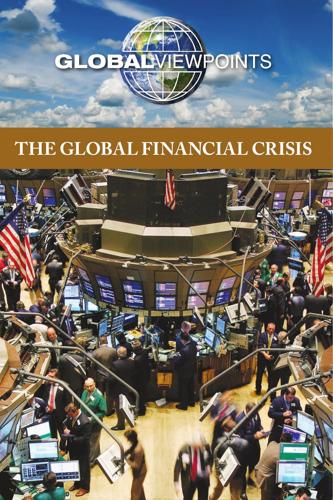
Global Financial Crisis
by
Noah Berlatsky
Published 19 Feb 2010
African countries should have the right to take unilateral actions to stop debt payments because they violate the basic human and social rights of their citizens. Likewise, Africa should launch another major struggle for the repatriation of the wealth stolen from the African people and illegally kept abroad with the complicity of Western states and financial institutions. Tax evasions, capital flight and transfer pricing have deprived African countries of billions of dollars that should be returned to serve the continent’s development. Therefore, Africa, through its regional and continental institutions, should launch a campaign for the repatriation of that wealth and seek the help of the United Nations institutions, the solidarity of the global South and the support of progressive public opinion in the North.

Move Fast and Break Things: How Facebook, Google, and Amazon Cornered Culture and Undermined Democracy
by
Jonathan Taplin
Published 17 Apr 2017
The bitter irony is that Amazon noticed that a few independent bookstores in big cities were still thriving, so it decided to go into the bookstore business itself. But Amazon is not alone in its avoidance of taxes. Bloomberg Businessweek reports, “The tactics of Google and Facebook depend on ‘transfer pricing,’ paper transactions among corporate subsidiaries that allow for allocating income to tax havens while attributing expenses to higher-tax countries. Such income shifting costs the U.S. government as much as $60 billion in annual revenue, according to Kimberly A. Clausing, an economics professor at Reed College in Portland, Oregon.”
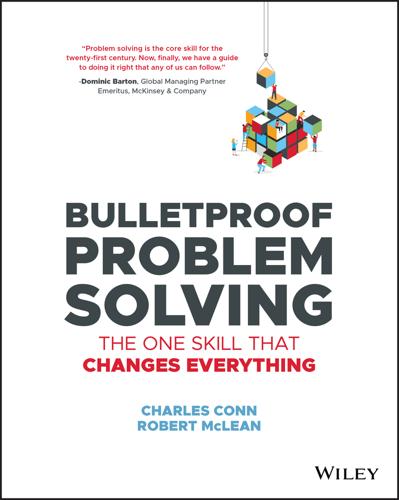
Bulletproof Problem Solving
by
Charles Conn
and
Robert McLean
Published 6 Mar 2019
This strategy resulted in $400m of payments to CSIRO, which was used to fund additional research in the Australian national interest. CSIRO believed that its wifi technology was valuable, that its patent was being infringed, and that it was entitled to receive a reasonable fee for use. The giant tech companies who were using this technology, on the other hand, believed the right transfer price was zero for many reasons, including that CSIRO was a publicly funded research agency. In a CSIRO briefing to the US government, it was reported this way: “CSIRO tried to license this product. In 2003 and 2004, it became aware of products that it believed infringed on its patent, and sent letters to 28 companies asking them to please discuss terms for a license from CSIRO.

Car Guys vs. Bean Counters: The Battle for the Soul of American Business
by
Bob Lutz
Published 31 May 2011
I wasn’t buying. Changing a car that much really meant “all-new car,” and at the anticipated modest sales volume, would never make business sense. I just kept insisting on a Holden-based idea, which had evolved into a coupe body style, to be marketed as a reborn Pontiac GTO. Months passed in arguments over “transfer price” and “Who’s going to pay for the engineering and the tooling for the U.S. headlights?” GM North America’s view was “Why should we fund an Asia-Pacific project so they can sell in our market?” Asia-Pacific’s view was “You’re the customer and the beneficiary; why should we pay?” My somewhat naïvely utopian view was “Hello!
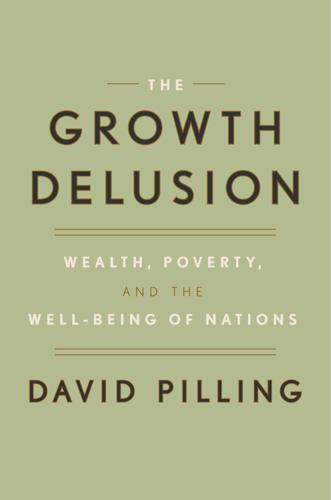
The Growth Delusion: Wealth, Poverty, and the Well-Being of Nations
by
David Pilling
Published 30 Jan 2018
Many multinational companies are able to move the source of value of their products—whether intellectual property, service contracts, or legal services—around their international networks almost willy-nilly. You may buy your engine in Seattle, but the people ensuring the engine keeps running for twenty years are in Mumbai. Through a practice known as transfer pricing one subsidiary charges another for the use of these intangible services and the profit is logged in one location—almost certainly the one with the lower tax rate. In 2014 Facebook caused an outcry in Britain by paying tax of just £4,327, a fact that helped provoke a tax revolt in one small Welsh town where tiny businesses were paying substantially more than that.14 GDP was conceived of in terms of the nation state, but businesses increasingly operate across borders.
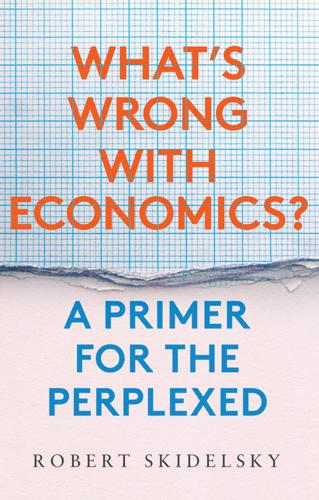
What's Wrong With Economics: A Primer for the Perplexed
by
Robert Skidelsky
Published 3 Mar 2020
Richard Cooper writes: ‘Widespread economic capacity, in a globally competitive environment, creates options for all parties; and the presence of alternatives undermines the capacity of any one player to achieve its preferred ends, except through good performance in the eyes of its customers’.9 This is a highly idealised picture of the actual global system in which large corporations can allocate markets, choose where to invest, and move money from place to place; and, by using transfer pricing – buying at inflated prices from their own subsidiaries – pay tax wherever they want.10 To these abuses of competition, most economists have one answer: more competition. A far more common – and complex – form of market power is oligopoly: a market dominated by a few large firms (cars, oil, telecoms, aviation), rather than just one.
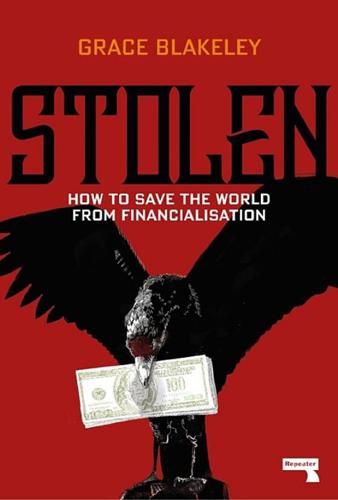
Stolen: How to Save the World From Financialisation
by
Grace Blakeley
Published 9 Sep 2019
They are using this monopoly control to acquire rents, overcharging for some services and failing to pay workers in line with their productivity. Rent extraction and wage suppression amongst some of the largest firms in the global economy accelerate the problems associated with finance-led growth that have been outlined in this book. Many of these corporations are also using transfer pricing and other tactics to avoid paying tax, and some have become so powerful that they are able to escape most attempts to regulate them. These corporations control one of the modern economy’s most valuable resources — data — and they are monopolising this to maximise their profits, rather than using it for innovation or the public good.

Ask Your Developer: How to Harness the Power of Software Developers and Win in the 21st Century
by
Jeff Lawson
Published 12 Jan 2021
The next problem, though, was how to measure the effectiveness of each of these services, and how to account for where the business was spending money. If one team ran their service on ten thousand servers, was that good, or was that horribly inefficient? And what business purpose should that cost be ascribed to? So Amazon started ascribing a cost to using these services, even internally. Some people call this transfer pricing, but in fact it’s a system of doing two things: holding teams accountable for their costs, and deciding where to put more resources in budget cycles. Small teams are accountable for the efficiency of their service, because they have to effectively publish a “price” for internal customers, and those internal customers have to pay the costs out of their P&Ls.
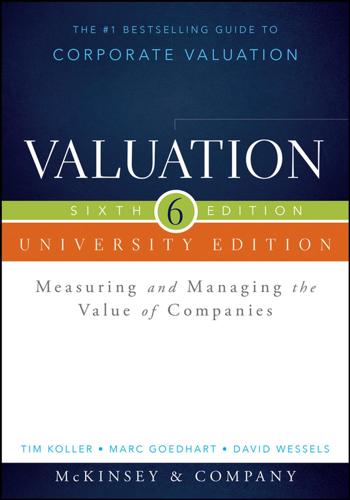
Valuation: Measuring and Managing the Value of Companies
by
Tim Koller
,
McKinsey
,
Company Inc.
,
Marc Goedhart
,
David Wessels
,
Barbara Schwimmer
and
Franziska Manoury
Published 16 Aug 2015
The net effect would eliminate $2 million in earnings for ConsumerCo’s consolidated financials (see the Eliminations I column in Exhibit 17.5).4 As for ConsumerCo, in most situations, the earnings impact is small because it is driven by the change in inventory, not the ending inventory. In addition, the $50 million of ending inventory of internal supplies is eliminated in ConsumerCo’s 2015 consolidated financials, with 3 The cumulative value of business units will equal the aggregate value, but the value split depends on the level of transfer pricing between the two units. The higher the transfer price, the more aggregate value is transferred to the private-label business. To value each business unit accurately, record intercompany transfers at the value that would be transacted with third parties. Otherwise, the relative value of the business units will be distorted. 4 There is no impact on cash taxes or NOPLAT from the accounting consolidation.
…
Procurement contracts, long-term contracts with customers, and loan agreements, for example, often require the creation of transitional service agreements between buyer and seller to guarantee continuity of the business unit. Or they may include 640 DIVESTITURES change-of-ownership clauses activated upon divestiture that render the existing contract or agreement invalid when ownership in the business transfers. Pricing and Liquidity As discussed in Chapter 5, market valuation levels are generally in line with intrinsic value potential in the long term but can deviate in the short term. A near-term divestiture would seem to be a good idea if the market would price a business above management’s estimate of its intrinsic value.
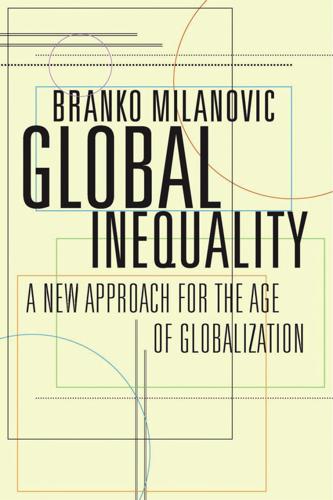
Global Inequality: A New Approach for the Age of Globalization
by
Branko Milanovic
Published 10 Apr 2016
In other words, they limit the ability of national authorities to conduct monetary policy.11 Or take the example of EU laws that supersede national laws or require harmonization between the laws of different nations. Methodological nationalism is clearly inappropriate in this situation. It is also unclear what relevance national exports and imports have in an integrated and globalized economy where large companies, through transfer pricing or internal “exports” and “imports” designed to minimize taxes, can strongly affect national trade statistics, showing a country’s exports to be higher or lower without anything having been effectively changed. Similarly, if, for example, a high proportion of a country’s exports comes from companies that belong to foreigners (as is the case with Ireland), export statistics may look high and Gross Domestic Product may increase, but Gross National Product (which includes only the earnings of citizens) may be much smaller or may move differently from the GDP.
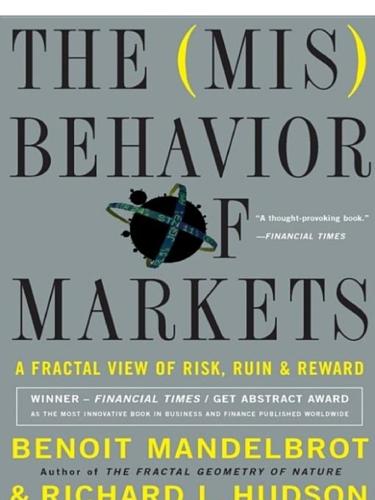
The Misbehavior of Markets: A Fractal View of Financial Turbulence
by
Benoit Mandelbrot
and
Richard L. Hudson
Published 7 Mar 2006
He was born in Boston, the son of a Harvard University placement officer; but when World War II began he and his family migrated from city to city, following his father’s military assignments. He also changed universities and concentrations—from the University of California in Berkeley to the campus in Los Angeles, and from medicine to business to economics. His thesis, on a classic economics topic called transfer pricing, was not going well; in fact, one professor advised he drop it. Another suggested he go visit Markowitz, who had left Chicago and was working near UCLA at a well-known think-tank, the RAND Corp. “I introduced myself to him and said I was a great fan of his work,” Sharpe recalled later. And, of course, Markowitz had a good thesis idea, for which he became Sharpe’s unofficial adviser: Simplify the portfolio model.

The City
by
Tony Norfield
Profits, financial and global developments Measuring the rate of profit on capitalist investment is complicated by many factors, not just companies hiding or boosting their profits with creative accounting tricks. Above all, it is difficult to pinpoint the location of the investment that generated the profit when giant corporations supply their own global networks with their own transfer prices, or when they get cheap inputs from other companies in low-wage countries. In addition, a key distinction in Marxist value theory, between operations that are productive and those that are unproductive, cannot easily be determined when using economic data. Many companies have both kinds of operation that are not distinguished in the statistics.

A New History of the Future in 100 Objects: A Fiction
by
Adrian Hon
Published 5 Oct 2020
The previous year, Shaxson had been involved in a case against United Petroleum, a company accused of tax evasion, bribery, hacking, and general dirty tricks. It was widely thought that Shaxson would rule against UP and that he would recommend a deep reformation of the tax system, including an elimination of reinvoicing, transfer pricing, and a general rollback of banking secrecy. Polls suggested that his recommendations would be favored by British citizens. Plenty of corporations and tax havens were deathly afraid of this outcome, especially the prime minister of Mauritius, who personally stood to lose billions. One way to derail this process was by killing Shaxson.
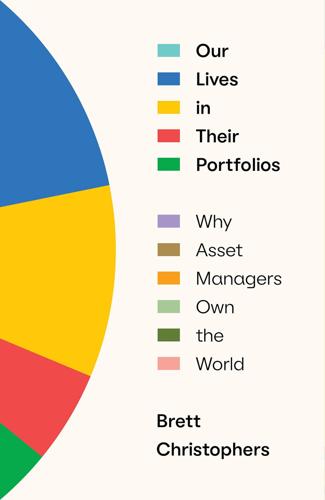
Our Lives in Their Portfolios: Why Asset Managers Own the World
by
Brett Chistophers
Published 25 Apr 2023
Kohl, ‘My Home Is an Asset Class: The Financialization of Housing in Europe’, January 2022, p. 73 – at greens-efa.eu. 48 Sometimes the life of closed-end funds is extended by one or two years, thus lengthening the period during which assets can be held and options for their disposal explored. 49 Of course, KKR could have held on to the asset by using another of its funds to acquire it when the KKR Global Infrastructure Investors I vehicle sold out. Such intra-group, inter-fund transactions do happen, but they are very rare, not least because they raise extremely complex – and potentially highly conflictual – issues around transfer pricing, with the limited partners in the respective funds having diametrically opposed interests on this score. 50 Z. Bentley, ‘Is It Time to Take a Closer Look at Long-Term Funds?’, 2 April 2020 – at infrastructureinvestor.com. 51 Cited in ibid. 52 M. Torrance, ‘The Power of Governance in Financial Relationships: Governing Tensions in Exotic Infrastructure Territory’, Growth and Change 38 (2007), p. 682. 53 Cited in Bentley, ‘Is It Time to Take a Closer Look?’.
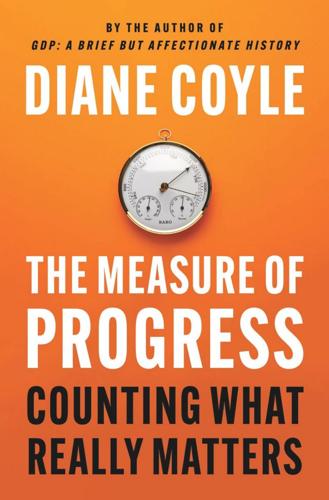
The Measure of Progress: Counting What Really Matters
by
Diane Coyle
Published 15 Apr 2025
Reduced costs have made them possible, but what has made them interesting to companies is the opportunity to focus on the high-value-added parts of the production chain, and therefore to make a higher profit margin. Intangibles are therefore a core part of the story. The hub company will need to share some of its IP, such as blueprints or patents, to enable manufacture (and may charge a fee for this, or an internal transfer price that helps with minimising tax payments). It will also derive profits from various intangible assets, such as patents or brands, whereas the manufacturing processes are low margin by comparison. In the smartphone example, Apple and Samsung are the market leaders now, but it used to be Nokia and BlackBerry until 2010, so a strong brand brings some market power but it might not last (Dedrick and Kraemer 2017).
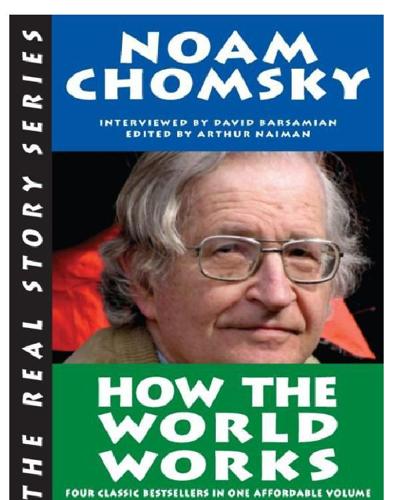
How the World Works
by
Noam Chomsky
,
Arthur Naiman
and
David Barsamian
Published 13 Sep 2011
The corporations that do this are huge totalitarian institutions, and they aren’t governed by market principles—in fact, they promote severe market distortions. For example, a US corporation that has an outlet in Puerto Rico may decide to take its profits in Puerto Rico, because of tax rebates. It shifts its prices around, using what’s called “transfer pricing,” so it doesn’t seem to be making a profit here. There are estimates of the scale of governmental operations that interfere with trade, but I know of no estimates of internal corporate interferences with market processes. They’re no doubt vast in scale, and are sure to be extended by the trade agreements.

The New Trading for a Living: Psychology, Discipline, Trading Tools and Systems, Risk Control, Trade Management
by
Alexander Elder
Published 28 Sep 2014
Hedgers give up a chance of a windfall but insulate themselves from price risks. Survivors value stability. That why the Exxons, the Coca-Colas, and the Nabiscos of the world are among the major players in commodity markets. Hedgers are the ultimate insiders, and a good hedging department not only buys price insurance, but also serves as a profit center. Hedgers transfer price risks to speculators who enter the markets, lured by the glitter of potential profits. It's ironic that hedgers, who have inside information, are not fully confident about prices, while crowds of cheerful outsiders plunk down money to bet on futures. The two largest groups of speculators are farmers and engineers.
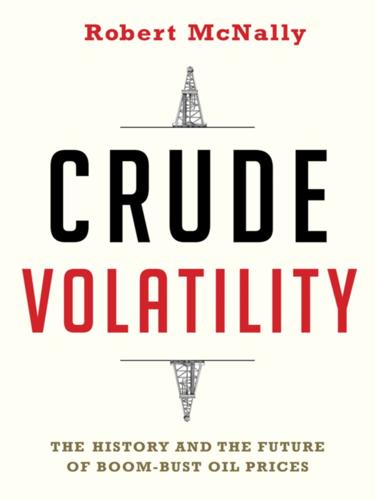
Crude Volatility: The History and the Future of Boom-Bust Oil Prices
by
Robert McNally
Published 17 Jan 2017
International Petroleum Cartel, 23. Proved oil reserves are reserves that are economical to produce at prevailing prices and with technology. 92. Federal Trade Commission. International Petroleum Cartel, 25–28. 93. Skeet, OPEC, 5; Parra, Oil Politics, 69–73. 94. Parra, Oil Politics,72. 95. These intra-company transfer prices did not reflect a market price and were used to calculate taxes. Companies shifted profits from higher to lower tax jurisdictions (Fattouh, “Origins and Evolution,” 43). 96. In the industry’s parlance, prices quoted in receiving ports are called “CIF,” which stands for cost, insurance, freight.
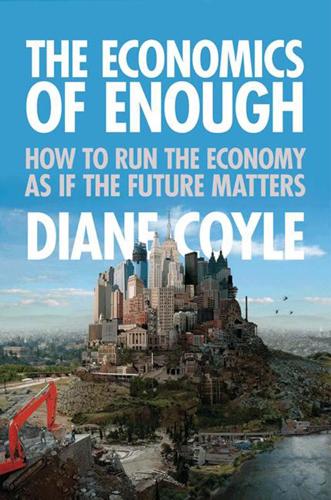
The Economics of Enough: How to Run the Economy as if the Future Matters
by
Diane Coyle
Published 21 Feb 2011
All of us together, in and out of government, must bear the burden.” 6 OECD (2009). 7 Baker (2010). 8 Dunleavy and Hood (1994), World Bank (2000), Dunleavy et al. (2006); “The New Public Management and its Legacy,” The World Bank, (2000), http://www.mh-lectures.co.uk/npm_2.htm 9 Kay (2010). 10 Surveys of this literature include O’Flynn (2007), OECD (2001, 2003). 11 OECD (2003), 3. 12 Kamarck (2003). 13 Ibid., 7. 14 The study of the role, nature, and evolution of institutions in economic growth and economic behaviour. 15 The well-known difficulty of establishing correct transfer prices within big organizations illustrates how hard it would be for the transactions concerned to involve explicit prices in an external market. 16 For recent examples see Sowell (2007, 2008), Blond (2010). 17 Simon (1991). 18 An overview of their work is available in the 2009 Nobel citation and background paper http://nobelprize.org/nobel_prizes/economics/laureates/2009/sci.html.
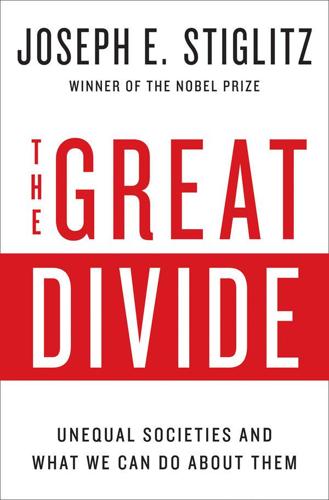
The Great Divide: Unequal Societies and What We Can Do About Them
by
Joseph E. Stiglitz
Published 15 Mar 2015
Our multinationals have learned how to exploit globalization in every sense of the term—including exploiting the tax loopholes that allow them to evade their global social responsibilities. The U.S. could not have a functioning corporate income tax system within the country if we had elected to have a transfer price system (where firms “make up” the prices of goods and services that one part buys from another, allowing profits to be booked to one state or another). The U.S. has developed a formulaic system, where global profits are allocated on the basis of employment, sales, and capital goods. But there is plenty of room to further fine-tune the system in response to the easier ability to shift profits around when a major source of the real “value added” is intellectual property.

Dancing in the Glory of Monsters: The Collapse of the Congo and the Great War of Africa
by
Jason Stearns
Published 29 Mar 2011
Ann Wright and Renée Fenby (London: Verso, 2001), 31. 13 “Demands and Derailment,” Africa Energy & Mining, May 21, 1997. 14 Special Commission Charged with Examining the Validity of Economic and Financial Conventions Concluded During the Wars of 1996–1997 and 1998: The Lutundula Report , National Assembly of the Democratic Republic of the Congo, February 26, 2006, 35. 15 Author’s interview with Mabi Mulumba, Kinshasa, December 2007. 16 Author’s interview with former presidential advisor, Kinshasa, November 2007. 17 Ibid. 18 Lutundula Report, 32–33. 19 The commander of the armed forces was General Vitalis Zvinavashe and the minister of defense Sidney Sekeramayi. 20 Author’s interview with businessman in Paris, February 2008. 21 “Rautenbach Denies Murder Allegation,” South African Press Agency, December 16, 1999. 22 Author’s interview with Gécamines official, Kinshasa, July 2009. 23 Report of the United Nations Panel on the Illegal Exploitation of Natural Resources in the Democratic Republic of the Congo, United Nations, October 8, 2002, 11; Gérard Prunier, Africa’s World War: Congo, the Rwandan Genocide, and the Making of a Continental Catastrophe (Oxford: Oxford University Press, 2009), 218. 24 Author’s off-the-record telephone interview with a mining executive, May 2009. 25 Confidential South African intelligence report in the author’s possession. 26 Report of the United Nations Panel on the Illegal Exploitation of Natural Resources in the Democratic Republic of the Congo, United Nations, April 12, 2001, 33. 27 International Monetary Fund, Democratic Republic of the Congo: Selected Issues and Statistical Appendix, Country Report 1/123, July 2001, 16. 28 Author’s interview with Jean Mbuyu, Kinshasa, November 2007; author’s interview with Mwenze Kongolo, Kinshasa, May 2009. 29 Confidential industry intelligence report on Billy Rautenbach, August 10, 2000. 30 Ibid. 31 Cliff Taylor, “Congo Wealth Lures Africa’s Power-Players,” Independent (London), October 31, 1998; Michael Nest, “Ambitions, Profits and Loss: Zimbabwean Economic Involvement in the DRC,” African Affairs 100, no. 400 (2001): 484. 32 Report of the United Nations Panel, 8. 33 Martin Meredith, Our Votes, Our Guns: Robert Mugabe and the Tragedy of Zimbabwe (New York: PublicAffairs, 2002), 142. 34 Author’s interview with mining officials, Kinshasa, May 2009. There are, unfortunately, almost no legal safeguards in the Congo to prevent such transfer pricing. 35 Author’s interview with Dona Kampata, Kinshasa, July 2009. 36 Prunier, Africa’s World War, 239. 37 His name has been changed to protect his identity. 38 This section is based on several interviews with the pilot in the Eastern Congo, March 2008. 39 The UN panel of experts that was researching the illegal exploitation of natural resources in the Congo at the time was given similar information regarding how long it took to fly the stockpiles to Kigali. 40 According to Global Witness, a kilo of tin was being sold for $6 in Goma in 1998, when the world coltan price was hovering around $60 per kilo of refined tantalum.
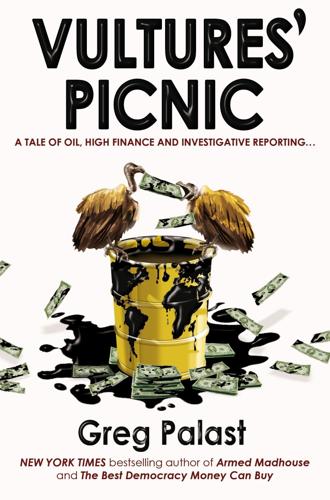
Vultures' Picnic: In Pursuit of Petroleum Pigs, Power Pirates, and High-Finance Carnivores
by
Greg Palast
Published 14 Nov 2011
I did, and simultaneously worked my way into a closed little circle called “The Workshop on Latin America,” led by Arnold Harberger, the post-graduate seminar better known as the Chicago Boys, the crew then advising the dictator of Chile, Augusto Pinochet. Milton Friedman was easy to charm. The charm I used on him was a theory I had about a new phenomenon: multinational corporations. These huge international corporations could, through their internal transfer pricing and accounting methods, work around the centuries-old laws that controlled, and pretty much prevented, speculators from shifting capital across borders. Once these capital controls were finally defeated and removed, I foresaw a dystopic world, with borders erased, with international corporations more powerful than any nation and above any one nation’s laws or regulations, markets unchained, trade barriers demolished, and finance capital racing like a wild animal from continent to continent.

How I Became a Quant: Insights From 25 of Wall Street's Elite
by
Richard R. Lindsey
and
Barry Schachter
Published 30 Jun 2007
For brevity’s sake, I have excluded some themes, including my contributions into asset/liability management for both banks and insurance companies. JWPR007-Lindsey May 7, 2007 16:50 Thomas C. Wilson 99 The Early 1990s: The Market Risk Era The early 1990s marked the market risk era. During this period, the banking industry developed economic capital or value-at-risk (VaR) models, Raroc performance measures,1 and treasury funds transfer pricing rules in order to answer questions with substantial strategic consequences. In order to understand these developments, as well as the contributions I made during this period, it is useful to provide some historical context. Although complex and difficult to summarize, several forces were at work in the early 1990s that helped to shape the market risk and treasury agenda.
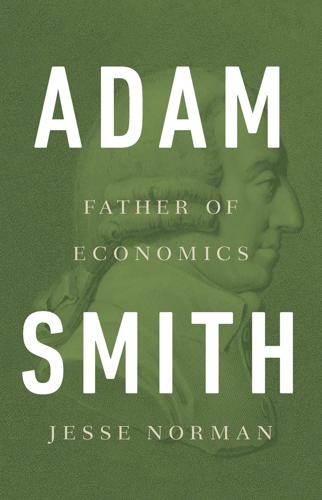
Adam Smith: Father of Economics
by
Jesse Norman
Published 30 Jun 2018
The possibilities for future social benefit are far-reaching, from artificial intelligence to smart manufacturing to the deep integration of machines into human biology. Yet the possibilities for abuse are arguably no less great. Public attention has rightly focused so far on apparently egregious uses of intra-company transfer pricing and other devices to reduce tax payments to a minimum. But there is another issue that may ultimately cast a still longer shadow. These companies enjoy gigantic and increasing asymmetries of power and information versus the individual consumer. These asymmetries often allow them the scope to exploit their consumers, both in specific segments or in groups and individually, in ways that run counter to established norms of fair dealing and justice.
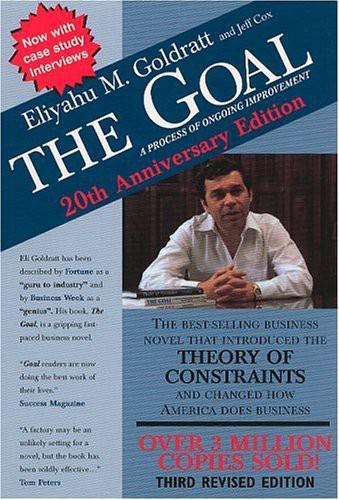
The Goal: A Process of Ongoing Improvement - 30th Anniversary Edition
by
Eliyahu M. Goldratt
Published 1 Jun 2012
"What is the damage there? Slightly bigger than four days? And what about the fact that sales continue to judge opportunities according to the formal ‘product cost’ and desirable margins. Or even worse, that they will look for anything they can sell above variable cost. What’s the damage there? And what about the transfer prices between us and the other divisions; that’s a real killer. Do you want more?’’ "Stop, stop,’’ he raised his hands. "You made your point. I guess I was inclined to deal with the open receivables issue just because there I know what to do, while in all the others . . .’’ "Afraid?’’ I ask. "Frankly, yes.’’

The Rough Guide to Cape Town, Winelands & Garden Route
by
Rough Guides
,
James Bembridge
and
Barbara McCrea
Published 4 Jan 2018
Masiphumelele Bicyle Tour Tying in with a bike-based community scheme, Awol Tours (021 418 3803, awoltours.co.za) offers a guided cycle tour around Kommetjie’s Masiphumelele township, learning about Xhosa customs en route, visiting a crèche and a sangoma (traditional healer) and stopping for lunch at a township café or home. The half-day tour costs R950 per person, R1850 including transfers. Prices are based on two people; single guests pay a supplement. Cape Point Vineyards Silvermine Rd • Tastings Mon–Weds & Fri–Sun 11am–6pm, Thurs 11am–2pm; picnics Mon–Weds & Fri–Sat noon–4pm; community market Thurs 4.30–8.30pm • Taster R10; platter R95–295; picnic basket for two R395 • 021 789 0900, cpv.co.za Cape Point Vineyards, the main producer in the Cape Point wine region, is known for its mineral-characterised sauvignon blancs, made with the help of the cooling sea breezes.

Oil: Money, Politics, and Power in the 21st Century
by
Tom Bower
Published 1 Jan 2009
Nor did they link it with the decision by Gennadi Timchenko, Putin’s key adviser about oil during the Saint Petersburg era, to move Gunvor, a Russian oil trader, from London to Switzerland. Some said the move was executed to exploit an easier climate, beyond regulatory reach. Others assumed that Gunvor was involved in transfer pricing by reselling Russian crude oil and refined products bought for artificially low prices. A few in Moscow felt that Timchenko was doing the opposite, paying top prices for Russian crude to get market share and earning his profits from refined products. In more prosaic language, Albert Helmig, a former vice chairman of Nymex, who had served on several of its regulatory committees, explained that in Switzerland Timchenko could benefit from “better vocabulary texture.”
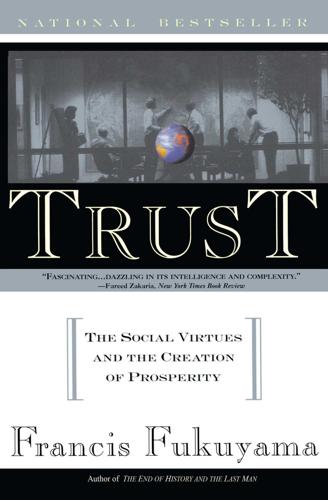
Trust: The Social Virtue and the Creation of Prosperity
by
Francis Fukuyama
Published 1 Jan 1995
Finally, the keiretsu bank, through preferential lending, can serve as a price-clearing agent, helping to equalize rates of return for member companies whose profits have been adversely affected by noncompetitive pricing, much like a corporate treasury that compensates divisions for losses on distorted intracompany transfer pricing. There may be other rationales for intermarket keiretsu. The keiretsu’s brand names, for instance, can be used in new product markets to establish credibility. One very important function that the keiretsu played in the 1960s and 1970s was to block or otherwise control the degree of direct foreign investment in Japan.
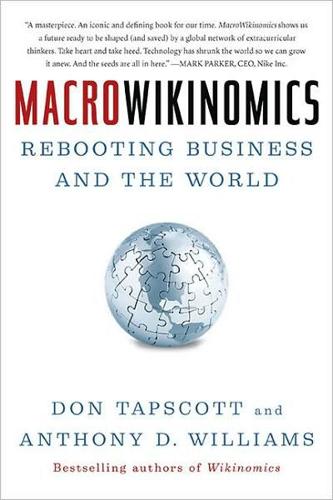
MacroWikinomics: Rebooting Business and the World
by
Don Tapscott
and
Anthony D. Williams
Published 28 Sep 2010
Build New Revenue and Collaboration Models Between Higher Education Institutions to Break Down the Silos Between Them Right now, universities around the world are embracing, to varying degrees, levels one and two—course content exchange and co-innovation—of the Global Network for Higher Learning. But we need to move to the next level. To achieve a Global Network for Higher Learning where students can benefit from the capability of any university in the world, we will need a collaborative revenue model and a new structure of transfer pricing. Students would enroll with their “primary” university, which would handle the disbursement of their tuition fees depending on what other university courses they study. The value of, say, a second-year psychology course at Stanford would be determined by market forces, not some central bureaucracy.

The Aristocracy of Talent: How Meritocracy Made the Modern World
by
Adrian Wooldridge
Published 2 Jun 2021
Globalization reinforces the winner-takes-all effect not just by multiplying the rewards for winning but also by allowing global companies to game the tax system. Companies buy foreign companies in order to move their nominal headquarters and thereby minimize their tax obligations (‘inversion’). They also charge affiliates for using intangible assets, such as brands, intellectual property or business services, in order to shift profits around (‘transfer pricing’). Not that long ago, only the most buccaneering companies made extensive use of tax havens. Now, leading companies such as Google do. Google achieved an effective tax rate of 2.4 per cent on its non-American profits in 2007–9 by routing profits to Bermuda, via Ireland and the Netherlands, an arrangement known as a double Irish.
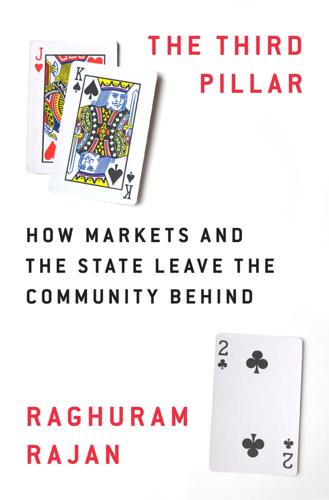
The Third Pillar: How Markets and the State Leave the Community Behind
by
Raghuram Rajan
Published 26 Feb 2019
Many countries in Europe as well as in emerging markets follow such practices and the United States is attempting it again by designating certain areas as opportunity zones.14 When unaccompanied by a collective local effort to attract business and reduce the costs of doing business, such incentives typically do not offset the higher cost of doing business in remote or distressed areas. As a result, even if companies do locate in the distressed area, they often try to game such incentives by only placing a skeleton operation there. Even though they do much of the work elsewhere, they show through clever transfer pricing that the value is added in the distressed area, so that they can collect the incentives. Therefore, tax incentives are usually useful only as part of an overall package of measures that a community takes to improve its attractiveness to businesses. In practice, though, the federal government finds it hard to single out communities where a serious revival effort is under way.

Evidence-Based Technical Analysis: Applying the Scientific Method and Statistical Inference to Trading Signals
by
David Aronson
Published 1 Nov 2006
The economic function of the futures markets has nothing to do with raising capital and everything to do with price risk. Price changes, especially large ones, are a source of risk and uncertainty to businesses that produce or use commodities. The futures markets provide a means by which these businesses, called commercial hedgers, can transfer price risk to investors (speculators). At first blush, it may seem puzzling that commercial hedgers would even need investors to assume their price risk. Because some hedgers need to sell, like the farmer who grows wheat, and some need to buy, like the bread company that uses wheat, why don’t hedgers simply contract with each other?
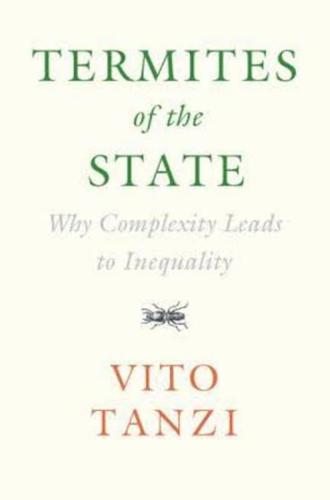
Termites of the State: Why Complexity Leads to Inequality
by
Vito Tanzi
Published 28 Dec 2017
Large enterprises, such as Apple and Starbucks, that have paid little taxes on enormous world profits have argued, with some justification, that they have been following existing laws and have not been evading taxes. The problem is the tax laws and not their behavior. Expressions such as “inversion,” “transfer prices,” “patent boxes,” “thin capitalization,” and “double Irish” have entered the lexicon of media reporting. They reflect tax avoidance strategies used by corporations. Similar examples could be provided from several areas of the financial market or from other sectors. Once again it must be remarked that those who benefit from these interpretations are not the average workers, and that these strategies end up affecting Gini coefficients and equity.

The Signal and the Noise: Why So Many Predictions Fail-But Some Don't
by
Nate Silver
Published 31 Aug 2012
Bill James, who twenty-five years earlier had ushered in the Sabermetric era* by publishing a book called The Bill James Baseball Abstract, was soon to be hired as a consultant by the Red Sox. An unhealthy obsession with baseball statistics suddenly seemed like it could be more than just a hobby—and as it happened, I was looking for a new job. Two years out of college, I was living in Chicago and working as something called a transfer pricing consultant for the accounting firm KPMG. The job wasn’t so bad. My bosses and coworkers were friendly and professional. The pay was honest and I felt secure. But telling a company how to set prices at its cell phone factory in Malaysia so as to minimize its tax exposure, or hopping a 6 A.M. flight to St.
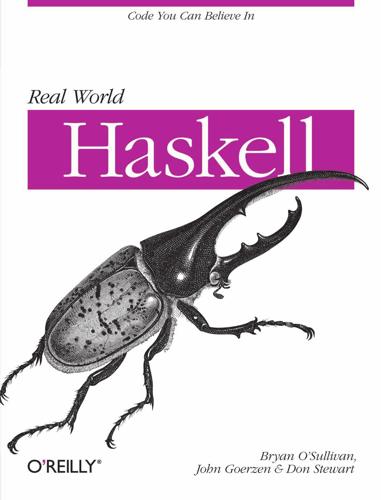
Real World Haskell
by
Bryan O'Sullivan
,
John Goerzen
,
Donald Stewart
and
Donald Bruce Stewart
Published 2 Dec 2008
We can use retry to correct this, while keeping the function’s type the same: -- file: ch28/GameInventory.hs transfer :: Gold -> Balance -> Balance -> STM () transfer qty fromBal toBal = do fromQty <- readTVar fromBal when (qty > fromQty) $ retry writeTVar fromBal (fromQty - qty) readTVar toBal >>= writeTVar toBal . (qty +) Now that we are using retry, our item sale function becomes dramatically simpler: -- file: ch28/GameInventory.hs sellItem :: Item -> Gold -> Player -> Player -> STM () sellItem item price buyer seller = do giveItem item (inventory seller) (inventory buyer) transfer price (balance buyer) (balance seller) Its behavior is slightly different from our earlier function. Instead of immediately returning False if the seller doesn’t have the item, it will block (if necessary) until both the seller has the item and the buyer has enough money to pay for it. The beauty of STM lies in the cleanliness of the code it lets us write.
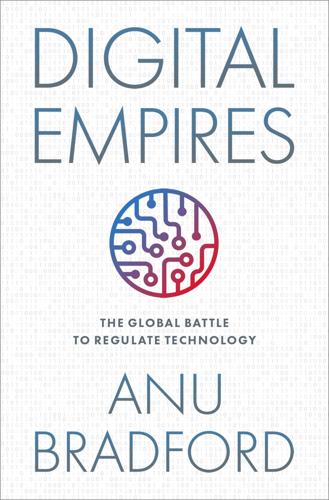
Digital Empires: The Global Battle to Regulate Technology
by
Anu Bradford
Published 25 Sep 2023
Times (May 6, 2015), https://www.nytimes.com/2015/05/07/business/international/european-commission-e-commerce-inquiry-american-tech-companies.html. 151.Julia Fioretti, Apple Appeals Against EU Tax Ruling, Brussels Says No Cause for Lower Tax Bill, Reuters (Dec. 18, 2016), https://www.reuters.com/article/us-eu-apple-taxavoidance-idUSKBN148007. 152.Interview by Kara Swisher with Barack Obama, President of the United States of America, in Stanford, Cal. (Feb. 15, 2015), https://www.vox.com/2015/2/15/11559056/white-house-red-chair-obama-meets-swisher. 153.U.S. Dep’t of the Treasury, The European Commission’s Recent State Aid Investigations of Transfer Pricing Rulings (Aug. 24, 2016), https://home.treasury.gov/system/files/131/WhitePaper-EU-State-Aid-8-24-2016.pdf. 154.Adam Satariano & Jack Nicas, E.U. Fines Google $5.1 Billion in Android Antitrust Case, N.Y. Times (July 18, 2018) https://www.nytimes.com/2018/07/18/technology/google-eu-android-fine.html. 155.John Cassidy, Why Did the European Commission Fine Google Five Billion Dollars?

Cuba Travel Guide
by
Lonely Planet
You can also organize day trips to Havana and Trinidad (approximately CUC$150 to CUC$160). Ask at the hotels. Marina Internacional Cayo Largo DIVING, FISHING ( 24-81-33; Combinado) Just beyond the turtle farm in Combinado, this is the departure point for deep-sea fishing trips (CUC$325 for four hours and eight people) and diving (CUC$39 for one immersion including hotel transfer). Prices are more expensive here because you can’t shop around. The marina also organizes two international fishing tournaments held here in September. Sleeping All of Cayo Largo del Sur’s hotels face the 4km beach on the south side of the island. Though largely shadeless, the beach here is gorgeous and rarely crowded (as no one lives here).

Lonely Planet Greek Islands
by
Lonely Planet
,
Alexis Averbuck
,
Michael S Clark
,
Des Hannigan
,
Victoria Kyriakopoulos
and
Korina Miller
Published 31 Mar 2012
Rembetika Conference MUSIC (www.rebetology.com; Oct) Musicians and music-lovers gather to enjoy traditional Greek rembetika (blues songs). Sleeping Accommodation in Hydra is of a high standard, but you pay accordingly. Most owners will meet you at the harbour if pre-arranged and can organise luggage transfer. Prices drop midweek and for longer stays. Hydra Hotel BOUTIQUE STUDIOS €€ Offline map ( 22980 53420, 6972868161; www.hydra-hotel.gr; Petrou Voulgari 8; studio incl breakfast €100-130, apt €160-230, maisonette €230; ) Climb high on the south side of the port to swishy, top-of-the-line apartments in an impeccably renovated ancient mansion with kitchenettes and sweeping views.

The Coming Plague: Newly Emerging Diseases in a World Out of Balance
by
Laurie Garrett
Published 31 Oct 1994
Bibile, “The Political Economy of Controlling Transnationals: The Pharmaceutical Industry in Sri Lanka, 1972–1976,” International Journal of Health Services 8 (1978): 299–328: T. Heller, Poor Health, Rich Profits: Multinational Drug Companies and the Third World (London: Spokesman Books, 1977); UNCTAD Secretariat, “Dominant Positions of Market Power of Transnational Corporations: Use of the Transfer Pricing Mechanism,” Geneva, November 30, 1977; J. M. Starrels, “The World Health Organization, Resisting Third World Ideological Pressures” (Washington, D.C.: Heritage Foundation, 1985); R. Deitch, “Commentary from Westminster: More Pressure on the Profits of the Pharmaceutical Industry,” Lancet I (1984): 521; and International Federation of Pharmaceutical Manufacturers Associations (IFPMA), “Medicines and the Developing World,” Geneva, 1984. 136 S.